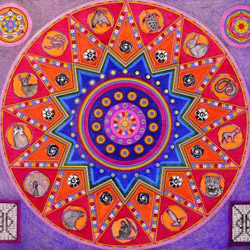
Νικόλας Τσιλογιάννης: Idols, Μπουρμπούλια και αυτοσχεδιασμός
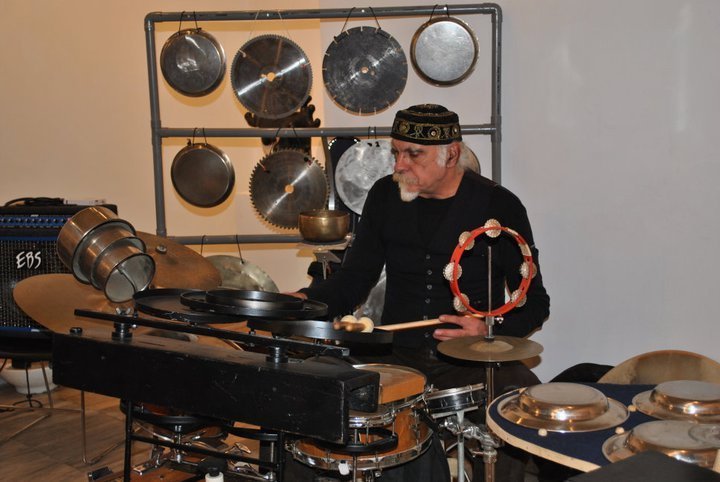
Ο Νικόλας Τσιλογιάννης είναι ένας από τους καλύτερους και σημαντικότερους ντράμερ της ελληνικής μουσικής σκηνής. Με μία πορεία που ξεκινά από τα μέσα της δεκαετίας του '60 και τους κορυφαίους - για το είδος που καταπιάστηκαν - Idols και στη συνέχεια με τα ιστορικά - ό,τι και να πούμε θα είναι λίγο - Μπουρμπούλια (με τον Διονύση Σαββόπουλο αρχικά και αργότερα με τον πρόωρα χαμένο Παύλο Σιδηρόπουλο). Από το 1976 που μετακόμισε στην Ολλανδία, οι μουσικές του αναζητήσεις τον οδήγησαν στα «ιδιαίτερα» μονοπάτια της αυτοσχεδιαστικής μουσικής - κυρίως με Ολλανδούς μουσικούς - ενώ παράλληλα η ενασχόληση του με τα εικαστικά έχει δώσει εξαιρετικές δουλειές, μέρος των οποίων μπορείτε να απολαύσετε από την 1η Ιουλίου έως τις 20 Ιουλίου στην γκαλερί Titanium (Λεωφόρος Βασιλέως Κωσταντίνου 44).
Ο μεγάλος αυτός καλλιτέχνης μίλησε με τον Άκη Wildthing.
Wild Thing: Καταρχήν Νικόλα, πώς ξεκίνησες να παίζεις τύμπανα;
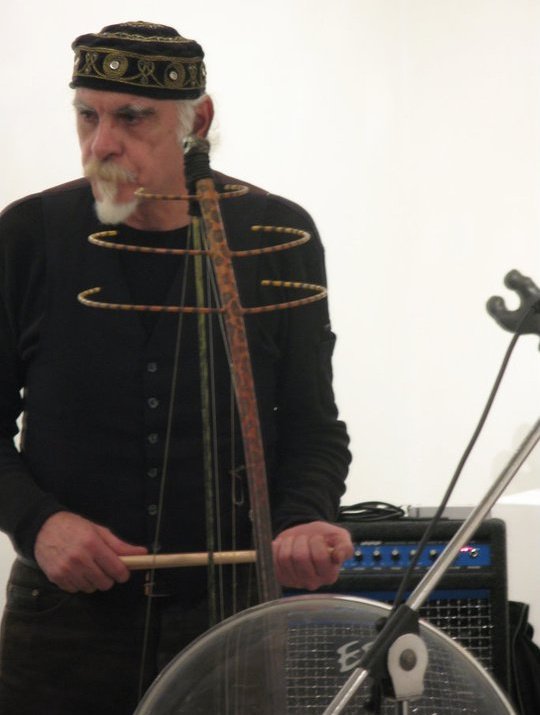 N.Tσιλογιάννης: Τα τύμπανα είναι ένα μυστήριο, όπως είναι και διάφορα άλλα μυστήρια στην ζωή μου. Εκείνο που θυμάμαι είναι ότι δούλευα από τα δώδεκα μου - ήμουν κακός μαθητής. Είμαι βασικά αγράμματος - όχι αμαθής, υπάρχει διαφορά. Βρίσκομαι σε έναν θείο μου να δουλεύω από τα δώδεκα και αυτό που θυμάμαι είναι ότι έχω δύο μπακέτες στα χέρια μου και παίζω πάνω σε ένα δράμι, εκεί πουλάγαμε μέταλλα. Αυτό που δεν θυμάμαι είναι πως βρέθηκαν οι μπακέτες στα χέρια μου. Τις αγόρασα; Τις βρήκα; Δεν θυμάμαι καθόλου. Βασικά ο πατέρας μου και ο θείος μου με προόριζαν να γίνω ο λογιστής της επιχείρησης του θείου μου, αλλά όπως σου είπα ήμουν κακός μαθητής, έκανα κοπάνες και τέτοια. Έχω δει δισεκατομμύρια φιλμ, ενώ θα έπρεπε να πηγαίνω σχολείο. Την εποχή εκείνη ο ξάδελφος μου - ο γιος του θείου στον οποίο δούλευα - ήταν μέλος της Χ.Ε.Ν. (Χριστιανική Ένωση Νεολαίας). Στη Χ.Ε.Ν. μεταξύ άλλων έκαναν πάρτυ και είχαν ένα γκρουπ για τα πάρτυ. Στο γκρουπ ήταν και ο Βαγγέλης Παπαθανασίου, ο οποίος έφυγε για να φτιάξει τους Φόρμινξ (σσ. φόρμιγξ). Και μου λέει ο ξαδερφός μου, «ρε συ Νικόλα, δεν έχουμε γκρουπ για τα πάρτυ μας, να έρθεις να παίξεις.» «Τι να έρθω;» του είπα, «δεν έχω τύμπανα, παίζω στο δράμι!» - «Kαι οι άλλοι έτσι είναι, παίξε όπως μπορείς!». Τον ρώτησα αν έχουν εκεί τύμπανα και μου είπε «ναι». Είχανε ένα σετ εκεί. Πάω λοιπόν και έρχεται ένας κιθαρίστας που είχε ένα τσαντάδικο, ένας τρομπετίστας που 'παιζε στον δήμο - Κερκυραίος - και ένας σαξοφωνίστας που ήταν τραπεζικός υπάλληλος και έπαιζε τενόρο. Και αρχίσαμε λοιπόν να παίζουμε διάφορα μπολεράκια κ.λπ. Ο κιθαρίστας μας βρήκε δουλειά σε μία ταβέρνα και θα πέρναμε εκατό δραχμές το βράδυ. Εγώ φαντάσου έπαιρνα 220 την εβδομάδα στο θείο μου! Άφησα την πρωινή δουλειά, αφού εκτός των άλλων δεν έκανα για πωλητής, και αρχίσαμε να παίζουμε. Los Alegrinos λεγότανε το σχήμα αυτό, που ήταν και το πρώτο μου γκρουπ. Μετά άρχισαν ο ένας να μένει, ο άλλος να φεύγει και αυτός που έφυγε μου είπε «Νίκο, θέλεις να έρθεις στην τάδε μπάντα;» Εγώ έλεγα πάντα «ναι» όταν μου πρότειναν να παίξω και έτσι βρέθηκα στους Idols.
N.Tσιλογιάννης: Τα τύμπανα είναι ένα μυστήριο, όπως είναι και διάφορα άλλα μυστήρια στην ζωή μου. Εκείνο που θυμάμαι είναι ότι δούλευα από τα δώδεκα μου - ήμουν κακός μαθητής. Είμαι βασικά αγράμματος - όχι αμαθής, υπάρχει διαφορά. Βρίσκομαι σε έναν θείο μου να δουλεύω από τα δώδεκα και αυτό που θυμάμαι είναι ότι έχω δύο μπακέτες στα χέρια μου και παίζω πάνω σε ένα δράμι, εκεί πουλάγαμε μέταλλα. Αυτό που δεν θυμάμαι είναι πως βρέθηκαν οι μπακέτες στα χέρια μου. Τις αγόρασα; Τις βρήκα; Δεν θυμάμαι καθόλου. Βασικά ο πατέρας μου και ο θείος μου με προόριζαν να γίνω ο λογιστής της επιχείρησης του θείου μου, αλλά όπως σου είπα ήμουν κακός μαθητής, έκανα κοπάνες και τέτοια. Έχω δει δισεκατομμύρια φιλμ, ενώ θα έπρεπε να πηγαίνω σχολείο. Την εποχή εκείνη ο ξάδελφος μου - ο γιος του θείου στον οποίο δούλευα - ήταν μέλος της Χ.Ε.Ν. (Χριστιανική Ένωση Νεολαίας). Στη Χ.Ε.Ν. μεταξύ άλλων έκαναν πάρτυ και είχαν ένα γκρουπ για τα πάρτυ. Στο γκρουπ ήταν και ο Βαγγέλης Παπαθανασίου, ο οποίος έφυγε για να φτιάξει τους Φόρμινξ (σσ. φόρμιγξ). Και μου λέει ο ξαδερφός μου, «ρε συ Νικόλα, δεν έχουμε γκρουπ για τα πάρτυ μας, να έρθεις να παίξεις.» «Τι να έρθω;» του είπα, «δεν έχω τύμπανα, παίζω στο δράμι!» - «Kαι οι άλλοι έτσι είναι, παίξε όπως μπορείς!». Τον ρώτησα αν έχουν εκεί τύμπανα και μου είπε «ναι». Είχανε ένα σετ εκεί. Πάω λοιπόν και έρχεται ένας κιθαρίστας που είχε ένα τσαντάδικο, ένας τρομπετίστας που 'παιζε στον δήμο - Κερκυραίος - και ένας σαξοφωνίστας που ήταν τραπεζικός υπάλληλος και έπαιζε τενόρο. Και αρχίσαμε λοιπόν να παίζουμε διάφορα μπολεράκια κ.λπ. Ο κιθαρίστας μας βρήκε δουλειά σε μία ταβέρνα και θα πέρναμε εκατό δραχμές το βράδυ. Εγώ φαντάσου έπαιρνα 220 την εβδομάδα στο θείο μου! Άφησα την πρωινή δουλειά, αφού εκτός των άλλων δεν έκανα για πωλητής, και αρχίσαμε να παίζουμε. Los Alegrinos λεγότανε το σχήμα αυτό, που ήταν και το πρώτο μου γκρουπ. Μετά άρχισαν ο ένας να μένει, ο άλλος να φεύγει και αυτός που έφυγε μου είπε «Νίκο, θέλεις να έρθεις στην τάδε μπάντα;» Εγώ έλεγα πάντα «ναι» όταν μου πρότειναν να παίξω και έτσι βρέθηκα στους Idols.
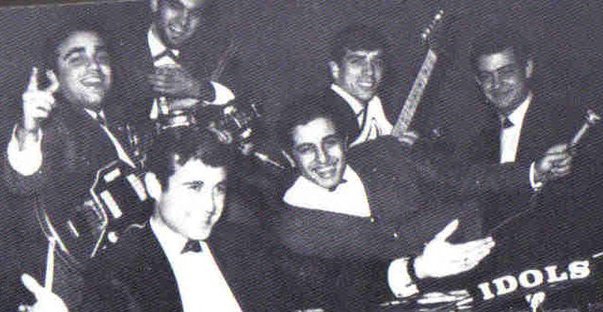 Ήμασταν στις Σπέτσες με τον Τζίμη τον Τζιμόπουλο, τον Ντέμη Ρούσσο και ένα άλλο παληκάρι - Μιχάλης λεγόταν, το επίθετο δεν το θυμάμαι, πιανίστας αυτός. Ήρθαν ο Jo Michat, ξάδερφος του Ντέμη - μόλις είχε έρθει από το Λίβανο - και ο Αντώνης ο Γιούλης, ο κιθαρίστας, πατέρας του ντράμερ του Γιούλη που παίζει τώρα με τον Άκη Τουρκογιώργη. Έτσι φτιάξαμε τους Idols. Παίξαμε στα πιo μεγάλα μαγαζιά της εποχής εκείνης. Ήμασταν χορευτική ορχήστρα, παίζαμε τις τελευταίες επιτυχίες. Τραγουδούσαμε σε όλες τις γλώσσες, ο Ντέμης και ο Jo τραγουδούσαν αγγλικά - ο Jo και γαλλικά - εγώ μερικά ιταλικά. Τραγουδούσαμε τις επιτυχίες της εποχής: Beatles, Stones κ.λπ. Βγάλαμε και δύο σαρανταπεντάρια. Μετά πήγα φαντάρος και είχαμε κάνει συμφωνία, όταν θα τελείωνα την θητεία να δουν αν μπορούν να με πάρουν πίσω. Και ψηφίζουν «όχι».
Ήμασταν στις Σπέτσες με τον Τζίμη τον Τζιμόπουλο, τον Ντέμη Ρούσσο και ένα άλλο παληκάρι - Μιχάλης λεγόταν, το επίθετο δεν το θυμάμαι, πιανίστας αυτός. Ήρθαν ο Jo Michat, ξάδερφος του Ντέμη - μόλις είχε έρθει από το Λίβανο - και ο Αντώνης ο Γιούλης, ο κιθαρίστας, πατέρας του ντράμερ του Γιούλη που παίζει τώρα με τον Άκη Τουρκογιώργη. Έτσι φτιάξαμε τους Idols. Παίξαμε στα πιo μεγάλα μαγαζιά της εποχής εκείνης. Ήμασταν χορευτική ορχήστρα, παίζαμε τις τελευταίες επιτυχίες. Τραγουδούσαμε σε όλες τις γλώσσες, ο Ντέμης και ο Jo τραγουδούσαν αγγλικά - ο Jo και γαλλικά - εγώ μερικά ιταλικά. Τραγουδούσαμε τις επιτυχίες της εποχής: Beatles, Stones κ.λπ. Βγάλαμε και δύο σαρανταπεντάρια. Μετά πήγα φαντάρος και είχαμε κάνει συμφωνία, όταν θα τελείωνα την θητεία να δουν αν μπορούν να με πάρουν πίσω. Και ψηφίζουν «όχι».
WT: Είχε αλλάξει και η σύνθεση του γκρουπ;
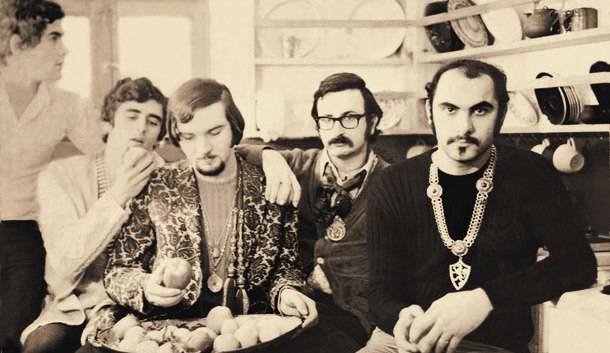 NT: Ναι, ο Ντέμης ήταν ήδη στο Παρίσι με τον Λουκά (Σιδερά) και τον Βαγγέλη. Είχανε πάρει στους Idols τον Γιώργο Πετρίδη στα φωνητικά και τον Βασίλη Κωνσταντινίδη στα ντραμς. Όταν έφευγα λυπημένος που είπαν τα παιδιά «όχι» - δημοκρατικά βέβαια, δεν τους κράτησα κακία - μου είπε ο Βασίλης ο Κωνσταντινίδης «'sorry' γι' αυτό που έγινε» κ.λπ. και ότι υπάρχει ένας Γιώργος Ρωμανός και ένας Σαββόπουλος που θέλουν να φτιάξουν γκρουπ. Μου έδωσε το τηλέφωνο του Διονύση, τον πήρα, βρεθήκαμε και συμφωνήσαμε να συνεργαστούμε. Μετά ήρθε ο Βασίλης ο Ντάλλας, ο Άρης ο Τασούλης και ο Τάκης ο Ανδρούτσος. Αυτή ήταν η πρώτη σύνθεση του γκρουπ το 1968. Κάναμε πρόβες στην Πλάκα - και με τον Ρωμανό - και όταν το γκρουπ ήταν έτοιμο, έκλεισε ο Διονύσης μία δουλειά σε ένα μαγαζί στη Θεσσαλονίκη που λεγόταν Μπαρμπαρέλα. Καθήσαμε εκεί λίγο καιρό. Ο Ρωμανός ήρθε μόνο μία βραδιά και μετά εξαφανίστηκε. Δεν ξέρω τι συνέβει... Μετά κατεβήκαμε στην Αθήνα, όπου ο Διονύσης ξέρει κάποιον κύριο που υποτίθεται ότι θα ήταν ο μάνατζερ μας και αυτός μας βρίσκει το Ροντέο.Το είχανε τρία αδέλφια, οι Ζερβαίοι. Ο ένας πωλούσε πλυντήρια, κουζίνες και τέτοια, ο άλλος δούλευε στην Φίνος Φιλμς, έφτιαχνε τα σκηνικά - όχι σκηνογράφος, ήταν στα τεχνικά - και ο άλλος ήταν λογιστής κάπου. Πιστεύω ότι για την πλάκα τους έκαναν το Ροντέο - ξέρεις να μαζεύονται τα παιδιά, να χορεύουνε κ.λπ. Δεν φανταζόντουσαν ότι θα βγάλουν πολλά λεφτά. Ξεκινήσαμε να παίζουμε εκεί, αλλά ο κόσμος έφευγε ή δεν ερχόταν καθόλου. Γιατί; Επειδή ο Διονύσης τότε, απ' ό,τι θυμάμαι, ήταν μέλος του ΚΚΕ και όλοι αυτοί που τον γουστάρανε ήθελαν τον Σαββόπουλο να παραμείνει με την κιθάρα σε στυλ Ντύλαν. Ενώ ο Διονύσης είχε γυρίσει από την Ιταλία - είχε φύγει από δω γιατί τον κυνηγάγανε, νόμιζαν ότι ξέρει πού κρύβεται ο Θεοδωράκης και άλλα τέτοια - όπου είχε δει και επηρεαστεί από άλλα πράγματα και ήθελε να φτιάξει ένα γκρουπ. Ο Ζέρβας, το αφεντικό, μας πλήρωνε κανονικά, δεν χάσαμε δραχμή. Μπορεί να πέρασαν και δύο μήνες με ελάχιστο κόσμο στο μαγαζί. Εμείς παίζαμε αλλά στο τέλος κάθε εβδομάδας έλεγε στον Διονύση «μην στεναχωριέσαι Διονύση, θα πετύχουμε». Ήταν μεγάλο ψυχολογικό στήριγμα για τον Διονύση ένας τέτοιος μαγαζάτορας.
NT: Ναι, ο Ντέμης ήταν ήδη στο Παρίσι με τον Λουκά (Σιδερά) και τον Βαγγέλη. Είχανε πάρει στους Idols τον Γιώργο Πετρίδη στα φωνητικά και τον Βασίλη Κωνσταντινίδη στα ντραμς. Όταν έφευγα λυπημένος που είπαν τα παιδιά «όχι» - δημοκρατικά βέβαια, δεν τους κράτησα κακία - μου είπε ο Βασίλης ο Κωνσταντινίδης «'sorry' γι' αυτό που έγινε» κ.λπ. και ότι υπάρχει ένας Γιώργος Ρωμανός και ένας Σαββόπουλος που θέλουν να φτιάξουν γκρουπ. Μου έδωσε το τηλέφωνο του Διονύση, τον πήρα, βρεθήκαμε και συμφωνήσαμε να συνεργαστούμε. Μετά ήρθε ο Βασίλης ο Ντάλλας, ο Άρης ο Τασούλης και ο Τάκης ο Ανδρούτσος. Αυτή ήταν η πρώτη σύνθεση του γκρουπ το 1968. Κάναμε πρόβες στην Πλάκα - και με τον Ρωμανό - και όταν το γκρουπ ήταν έτοιμο, έκλεισε ο Διονύσης μία δουλειά σε ένα μαγαζί στη Θεσσαλονίκη που λεγόταν Μπαρμπαρέλα. Καθήσαμε εκεί λίγο καιρό. Ο Ρωμανός ήρθε μόνο μία βραδιά και μετά εξαφανίστηκε. Δεν ξέρω τι συνέβει... Μετά κατεβήκαμε στην Αθήνα, όπου ο Διονύσης ξέρει κάποιον κύριο που υποτίθεται ότι θα ήταν ο μάνατζερ μας και αυτός μας βρίσκει το Ροντέο.Το είχανε τρία αδέλφια, οι Ζερβαίοι. Ο ένας πωλούσε πλυντήρια, κουζίνες και τέτοια, ο άλλος δούλευε στην Φίνος Φιλμς, έφτιαχνε τα σκηνικά - όχι σκηνογράφος, ήταν στα τεχνικά - και ο άλλος ήταν λογιστής κάπου. Πιστεύω ότι για την πλάκα τους έκαναν το Ροντέο - ξέρεις να μαζεύονται τα παιδιά, να χορεύουνε κ.λπ. Δεν φανταζόντουσαν ότι θα βγάλουν πολλά λεφτά. Ξεκινήσαμε να παίζουμε εκεί, αλλά ο κόσμος έφευγε ή δεν ερχόταν καθόλου. Γιατί; Επειδή ο Διονύσης τότε, απ' ό,τι θυμάμαι, ήταν μέλος του ΚΚΕ και όλοι αυτοί που τον γουστάρανε ήθελαν τον Σαββόπουλο να παραμείνει με την κιθάρα σε στυλ Ντύλαν. Ενώ ο Διονύσης είχε γυρίσει από την Ιταλία - είχε φύγει από δω γιατί τον κυνηγάγανε, νόμιζαν ότι ξέρει πού κρύβεται ο Θεοδωράκης και άλλα τέτοια - όπου είχε δει και επηρεαστεί από άλλα πράγματα και ήθελε να φτιάξει ένα γκρουπ. Ο Ζέρβας, το αφεντικό, μας πλήρωνε κανονικά, δεν χάσαμε δραχμή. Μπορεί να πέρασαν και δύο μήνες με ελάχιστο κόσμο στο μαγαζί. Εμείς παίζαμε αλλά στο τέλος κάθε εβδομάδας έλεγε στον Διονύση «μην στεναχωριέσαι Διονύση, θα πετύχουμε». Ήταν μεγάλο ψυχολογικό στήριγμα για τον Διονύση ένας τέτοιος μαγαζάτορας.
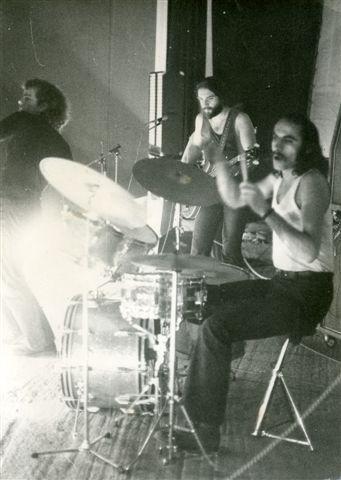 Από κει και πέρα είναι ιστορία. Παίζαμε δύο προγράμματα, τίγκα κάθε μέρα σχεδόν για τρία χρόνια. Στο πρόγραμμα συμμετείχαν οι Διόσκουροι, ο Σπύρος και η Λήδα που άνοιγαν συνήθως, επίσης είχαμε τον Βαγγέλη τον Γερμανό ή την Μαρίζα (Κωχ). Μια πολύ ωραία ιδέα του Διονύση ήταν που συνόδευα την Μαρίζα μόνο με τύμπανα. Την εποχή εκείνη αυτό ήταν κάτι πρωτοποριακό. Ο Διονύσης κατά την γνώμη μου είχε καταπληκτικές ιδέες. Το ότι είχε γίνει διάσημος του είχε δώσει δύναμη και οι μαγαζάτορες - ο Ζέρβας εκείνη την εποχή - τον εμπιστευόντουσαν. Ήταν επιτυχημένες οι ιδέες του. Όπως η καταπληκτική περίοδος με τον κύριο Σπαθάρη, που είχαμε επί σκηνής από την μία πλευρά Καραγκιόζη, την άλλη φιλμ και στην μέση το γκρουπ.
Από κει και πέρα είναι ιστορία. Παίζαμε δύο προγράμματα, τίγκα κάθε μέρα σχεδόν για τρία χρόνια. Στο πρόγραμμα συμμετείχαν οι Διόσκουροι, ο Σπύρος και η Λήδα που άνοιγαν συνήθως, επίσης είχαμε τον Βαγγέλη τον Γερμανό ή την Μαρίζα (Κωχ). Μια πολύ ωραία ιδέα του Διονύση ήταν που συνόδευα την Μαρίζα μόνο με τύμπανα. Την εποχή εκείνη αυτό ήταν κάτι πρωτοποριακό. Ο Διονύσης κατά την γνώμη μου είχε καταπληκτικές ιδέες. Το ότι είχε γίνει διάσημος του είχε δώσει δύναμη και οι μαγαζάτορες - ο Ζέρβας εκείνη την εποχή - τον εμπιστευόντουσαν. Ήταν επιτυχημένες οι ιδέες του. Όπως η καταπληκτική περίοδος με τον κύριο Σπαθάρη, που είχαμε επί σκηνής από την μία πλευρά Καραγκιόζη, την άλλη φιλμ και στην μέση το γκρουπ.
WT: Πώς διαλέξατε το όνομα «Μπουρμπούλια»;
NT: Ο Διονύσης το έβγαλε. Έκλεινε το μάτι στους Beatles. Ξέρεις το μπουρμπούλι επίσης είναι έντομο. Σαν την χρυσόμυγα, αλλά μαύρο τελείως.
WT: Την μουσική την γράφατε όλοι μαζί;
NT: Ο Διονύσης ερχόταν με την κιθάρα και έλεγε έχω αυτό το κομμάτι. Και μας ρωτούσε, «τι θα βάλουμε Νικόλα; Τι θα βάλουμε Βασίλη; Τι θα βάλουμε Άρη, Τάκη;» και εμείς του δίναμε ιδέες, μία - δύο διαφορετικές και αυτός διάλεγε και είχε την τελευταία λέξη, διότι το κομμάτι ήταν δικό του. Όλα αυτά παραδείγματος χάριν που ακούς στον Μπάλλο, σε όλο τον δίσκο, είναι δικά μας, με την αποδοχή βέβαια του Διονύση. Μου έλεγε για παράδειγμα, «Μπορείς Νίκο αντί για το πιατίνι να παίξεις στο βαθύ; Μου αρέσει καλύτερα» και το κρατάγαμε. Ο Διονύσης τότε δεν διάβαζε μουσική, ούτε έγραφε. Ούτε και εμείς, αλλά είχαμε την εμπειρία από τα προηγούμενα σχήματα στα οποία είχαμε παίξει. Ξέραμε τι πάει να πει να παίζεις σε ροκ εντ ρολ μπάντα. Αυτός μας έφερνε τις συνθέσεις και εμείς του δώσαμε τις γνώσεις μας, όσες είχαμε πάνω στα όργανα μας.
WT: Τι ακούγες εκείνη την εποχή;
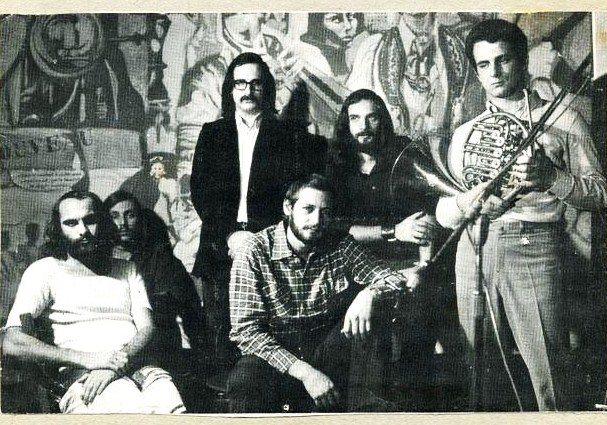 NT: Βέβαια Beatles, Rolling Stones. Και σιγά σιγά το πράγμα άνοιξε... Πολλά τα έμαθα από τον Βασίλη τον Ντάλλα, που είχε κάποιους φίλους των οποίων οι γονείς είχαν χρήματα και έτσι ταξίδευαν σε Λονδίνο, Παρίσι κ.λπ. και έφερναν δίσκους, συνήθως τις τελευταίες κυκλοφορίες. Οι τελευταίες κυκλοφορίες έφταναν σε εμάς μισό χρόνο μετά. Ακούγαμε όπως σου είπα Beatles, Rolling Stones, The Band, Van Morrison, Pink Floyd, Zappa, Vanilla Fudge. Πολλά ονόματα... Ό,τι είχε να κάνει με ροκ εντ ρολ ή με νέο - τότε - ήχο. Και μετά πήγαμε στον John McLaughlin, στο jazz-fusion...
NT: Βέβαια Beatles, Rolling Stones. Και σιγά σιγά το πράγμα άνοιξε... Πολλά τα έμαθα από τον Βασίλη τον Ντάλλα, που είχε κάποιους φίλους των οποίων οι γονείς είχαν χρήματα και έτσι ταξίδευαν σε Λονδίνο, Παρίσι κ.λπ. και έφερναν δίσκους, συνήθως τις τελευταίες κυκλοφορίες. Οι τελευταίες κυκλοφορίες έφταναν σε εμάς μισό χρόνο μετά. Ακούγαμε όπως σου είπα Beatles, Rolling Stones, The Band, Van Morrison, Pink Floyd, Zappa, Vanilla Fudge. Πολλά ονόματα... Ό,τι είχε να κάνει με ροκ εντ ρολ ή με νέο - τότε - ήχο. Και μετά πήγαμε στον John McLaughlin, στο jazz-fusion...
WT: Ήταν και η εποχή της ψυχεδέλειας...
ΝΤ: Το σκηνικό «ψυχεδέλεια» έχει να κάνει λίγο με την μουσική. Επειδή έβαζαν κάποια εφέ κ.λπ. Ήταν περισσότερο θέμα μάρκετινγκ. Ξέρεις, τα χρώματα, τα γράμματα και δημιούργησαν μία ατμόσφαιρα που την ονόμασαν «ψυχεδελική». Αλλά δεν θυμάμαι κάποιο γκρουπ που να έλεγε παίζουμε ψυχεδελική μουσική. Ήταν βέβαια τα drugs, αλλά το μεγαλύτερο μέρος ήταν θέμα μάρκετινγκ των εταιρειών. Κατά την γνώμη μου βέβαια αυτά.
WT: Μετά τον Σαββόπουλο παίξατε με τον Παύλο Σιδηρόπουλο.
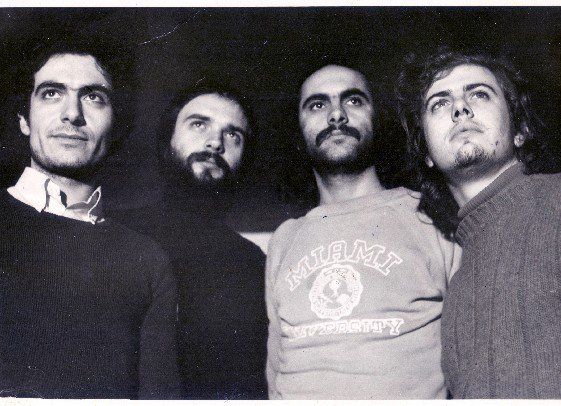 NT: Όταν φύγαμε από τον Σαββόπουλο γνωριστήκαμε με τον Παύλο τον Σιδηρόπουλο στα Στείρα, στην Εύβοια. Αυτός που είχε το Ροντέο στην Αθήνα είχε και ένα καλοκαιρινό Ροντέο εκεί, μια ντισκοτέκ. Τότε στο γκρουπ είμασταν, ο Τζώνη Λαμπίτσι, ο Ντάλλας κι εγώ. Με τα Μπουρμπούλια παίζαμε εκεί και βάζαμε και δίσκους. Ο Παύλος πήγαινε εκεί από μικρός με την οικογένειά του. Ήρθε και γνωριστήκαμε, μας είπε ότι σπούδαζε Θεσσαλονίκη και ήθελε να ασχοληθεί σοβαρά με την μουσική. Γίναμε πάρα πολύ καλοί φίλοι. Κατέβηκε στην Αθήνα και έφερε μαζί του τον Παντελή τον Δεληγιαννίδη και έφτιαξαν τους Δάμων και Φιντίας και αρχίσαμε να παίζουμε μαζί. Ο Παύλος, ο Ντάλλας, ο Παντελής κι εγώ. Κρατήσαμε το όνομα Μπουρμπούλια - ο Διονύσης δεν είχε πρόβλημα. Μετά ήρθε και ο Νίκος ο Δαπέρης και δύο παιδιά - άγγλοι - που είχαν παίξει λίγο με τους Πελόμα Μποκιού, ο Vic και ο Chris. Παίξαμε στη Θεσσαλονίκη, γυρίσαμε και γράψαμε στο στούντιο του Βασίλη τον «Σαρδόνιο» και ένα άλλο κομμάτι που δεν νομίζω ότι υπάρχουν σε δίσκο. Μετά ψιλοτσακώθηκε ο Βασίλης με τον ένα σαξοφωνίστα και εγώ έφυγα για Ολλανδία. Το 1976... Πάντως έχω να πω ότι όλα αυτά τα χρόνια, από το 1968 έως το 1976, ήταν φοβερά. Περάσαμε υπέροχα.
NT: Όταν φύγαμε από τον Σαββόπουλο γνωριστήκαμε με τον Παύλο τον Σιδηρόπουλο στα Στείρα, στην Εύβοια. Αυτός που είχε το Ροντέο στην Αθήνα είχε και ένα καλοκαιρινό Ροντέο εκεί, μια ντισκοτέκ. Τότε στο γκρουπ είμασταν, ο Τζώνη Λαμπίτσι, ο Ντάλλας κι εγώ. Με τα Μπουρμπούλια παίζαμε εκεί και βάζαμε και δίσκους. Ο Παύλος πήγαινε εκεί από μικρός με την οικογένειά του. Ήρθε και γνωριστήκαμε, μας είπε ότι σπούδαζε Θεσσαλονίκη και ήθελε να ασχοληθεί σοβαρά με την μουσική. Γίναμε πάρα πολύ καλοί φίλοι. Κατέβηκε στην Αθήνα και έφερε μαζί του τον Παντελή τον Δεληγιαννίδη και έφτιαξαν τους Δάμων και Φιντίας και αρχίσαμε να παίζουμε μαζί. Ο Παύλος, ο Ντάλλας, ο Παντελής κι εγώ. Κρατήσαμε το όνομα Μπουρμπούλια - ο Διονύσης δεν είχε πρόβλημα. Μετά ήρθε και ο Νίκος ο Δαπέρης και δύο παιδιά - άγγλοι - που είχαν παίξει λίγο με τους Πελόμα Μποκιού, ο Vic και ο Chris. Παίξαμε στη Θεσσαλονίκη, γυρίσαμε και γράψαμε στο στούντιο του Βασίλη τον «Σαρδόνιο» και ένα άλλο κομμάτι που δεν νομίζω ότι υπάρχουν σε δίσκο. Μετά ψιλοτσακώθηκε ο Βασίλης με τον ένα σαξοφωνίστα και εγώ έφυγα για Ολλανδία. Το 1976... Πάντως έχω να πω ότι όλα αυτά τα χρόνια, από το 1968 έως το 1976, ήταν φοβερά. Περάσαμε υπέροχα.
WT: Ξεχωρίζεις περισσότερο κάποιο κομμάτι από την εποχή που έπαιζες στα Μπουρμπούλια;
ΝΤ: Την «Μαύρη Θάλασσα» που υπάρχει ηχογραφημένη στο Ζωντανοί στο Κύτταρο με Δαπέρη, Γαδέλη και Ντάλλα. Ακόμα και σήμερα ακούγεται πολύ μπροστά. Είμαι περήφανος γι' αυτό. Και για τα υπόλοιπα, αλλά για τη «Μαύρη Θάλασσα» παραπάνω.
WT: Γιατί έφυγες για την Ολλανδία;
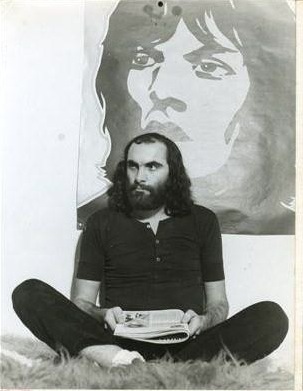 NT: Είχα γνωρίσει μια κοπέλα Ολλανδέζα, αλληλογραφούσαμε και όταν σταμάτησαμε με το γκρουπ, μου είπε, «αφού δεν έχεις κάτι να κάνεις, δεν έρχεσαι εδώ να δεις αν σου αρέσει;» Κανονικά θα έπρεπε να είχα πάει στο Λονδίνο, ήταν εκεί ο Μπονάτσος και ο Ανδρούτσος και μου είχαν πει να πάω, γιατί κάτι έκαναν αλλά μετά χάσαμε επαφή και πήγα στην Ολλανδία. Μου άρεσε και έμεινα.
NT: Είχα γνωρίσει μια κοπέλα Ολλανδέζα, αλληλογραφούσαμε και όταν σταμάτησαμε με το γκρουπ, μου είπε, «αφού δεν έχεις κάτι να κάνεις, δεν έρχεσαι εδώ να δεις αν σου αρέσει;» Κανονικά θα έπρεπε να είχα πάει στο Λονδίνο, ήταν εκεί ο Μπονάτσος και ο Ανδρούτσος και μου είχαν πει να πάω, γιατί κάτι έκαναν αλλά μετά χάσαμε επαφή και πήγα στην Ολλανδία. Μου άρεσε και έμεινα.
Στην Ολλανδία κάθησα, μελέτησα για να αλλάξω την τεχνική μου που ήταν ροκ εντ ρολ, για να παίξω αυτοσχεδιαστική μουσική. Έφτιαξα δικά μου σχήματα με Ολλανδούς μουσικούς. Αλλά ήδη από το 1974 που είχα πάει στο Παρίσι, είχα αρχίσει να «γρατζουνάω» με το μολύβι, να ασχολούμαι με τα εικαστικά. Πράγμα που δεν σταμάτησα ποτέ... Από απλές ζωγραφιές πήγα σε ελιά και από εκεί σε τρισδιάστατα objects. Μετά άρχισα να φτιάχνω ξύλινα αγάλματα - αρκετά από αυτά ήταν εμπνευσμένα από την μυθολογία μας: Ίκαρος, Μινώταυρος κ.λπ. Μετά ασχολήθηκα με τα μπρούτζινα και τον σίδηρο - κυρίως objects.
WT: Παράλληλα με τα εικαστικά έκανες και μία σημαντική μουσική καριέρα εκεί...
NT: Από τα 36 χρόνια που είμαι στην Ολλανδία έκανα καριέρα καμιά δεκαριά χρόνια με τα δικά μου τα γκρουπ: κουιντέτο, κουαρτέτο, τρίο. Και πήγαινα όλο και πιo 'abstract', προς την free jazz. Αυτό που έγινε με εμένα δηλαδή, είναι ότι από την μία μεριά έβγαιναν τα παιδιά από τα ωδεία με την σέσουλα - που σημαίνει ότι γινόντουσαν πολλά γκρουπ που παίζανε κυρίως μουσική του '50 και του '60, ξέρεις bebop κ.λπ. - ενώ εμείς παίζαμε πιο «δυσκολοχώνευτη» ας πούμε μουσική. Τα τζαζ κλαμπ τα οποία χρηματοδοτούνταν από την κυβέρνηση έκαναν σαχλαμάρες και τους κόβανε τις επιχορηγήσεις και κλείνανε. Οπότε τι έγινε; Aπό τη μία μεριά τα εικαστικά με τραβούσανε, επειδή δεν είχα την ίδια ευθύνη να κανονίσω πρόβες κ.λπ. Στα εικαστικά είσαι μόνος σου, ζωγραφίζεις, κάνεις ένα άγαλμα. Τα πράγματα με την μουσική έγιναν δύσκολα, έπρεπε να παρακαλέσω για να κάνω ένα gig. Τώρα πια δεν παίζω σχεδόν καθόλου, μόνο όταν έρχομαι εδώ παίζω κάποιες φορές στην γκαλερί. Θέλω βέβαια να φτιάξω ένα σχήμα και να συνεργάζομαι με διάφορους μουσικούς. Και πάντα κατευθείαν μουσική, ούτε παρτιτούρα, ούτε συζητήσεις. Μόνο μουσική. Βέβαια διαλέγω παιδιά που ξέρω ότι έχουν πείρα, όπως για παράδειγμα τελευταία φορά που έπαιξα με τον Θοδωρή το Ρέλλο, ο οποίος έχει τεράστια καριέρα πίσω του. Τους είδα πριν από λίγες μέρες τους Mode Plagal σε ένα μαγαζί που λέγεται Φάουστ και μάλιστα παίξαμε παρέα την «Μαυροδάφνη». Κάνουν φοβερή δουλειά τα παιδιά.
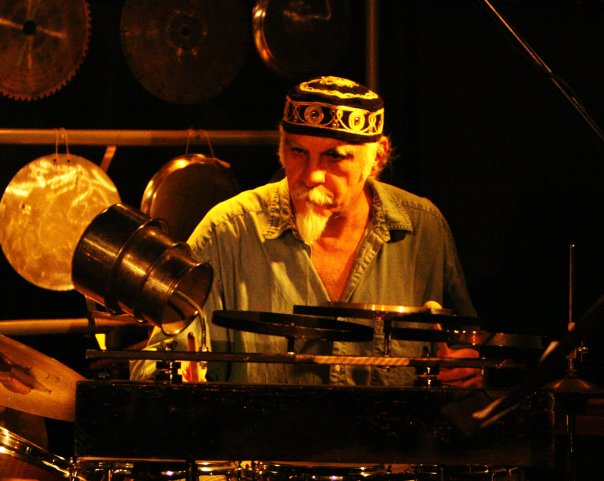
WT: Νομίζω ότι το πάντρεμα της ελληνικής παραδοσιακής μουσικής με το ροκ και την τζαζ από τα Μπουρμπούλια ξεκίνησε. Ποια είναι η δική σου γνώμη;
NT: Κατά την γνώμη μου - μπορεί και να κάνω λάθος - το αρχίσαμε εμείς με το Διονύση. Βασικά ο Διονύσης και εμείς κάναμε αυτό που έπρεπε να κάνουμε. Είχε πολύ καλές ιδέες. Όπως πιστεύω ότι ήταν δική του ιδέα που το ρεμπέτικο ξαναφούντωσε. Είχε φέρει στο Κύτταρο μετά από συζήτηση με τον (Ηλία) Πετρόπουλο τους Κερομύτη, Μουφλουζέλη και άλλους.
Και μετά όμως όταν παίζαμε με τον Παύλο και τον Παντελή στην Μαϊμού, στην Πλάκα, κάναμε κάποια ανάλογα πράγματα. Υπάρχει ένα κομμάτι - «Δημοτικό» το λέγαμε - όπου έπαιζα κουδούνια στην αρχή και ο Δεληγιαννίδης έκανε μια πολύ ωραία εισαγωγή σε παραδοσιακούς δρόμους.
WT: Και στα cd που έχεις ηχογραφήσει με τους Ολλανδούς μουσικούς σε κάποια κομμάτια πειραματίζεστε πάνω σε ελληνικούς παραδοσιακούς δρόμους. Εσύ - προφανώς - τους έμαθες αυτούς τους δρόμους...
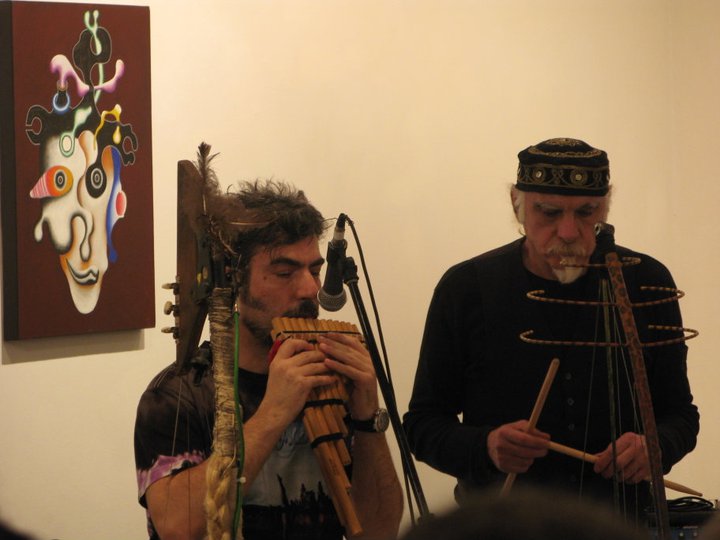 ΝΤ: Ναι, εγώ τους τα έμαθα! Στο πρώτο cd υπάρχει ένα κομμάτι, το βασικό θέμα του οποίου είχα ηχογραφήσει σε φορητό κασετόφωνο σε κάποια φάση που περίμενα τον Παύλο (Σιδηρόπουλο). Το κομμάτι ήταν 2/4 και το πήγα στον πιανίστα του γκρουπ στην Ολλανδία και του είπα, «θέλω να μου το γράψεις σε παρτιτούρα σε αυτόν τον ρυθμό», και του έδειξα το ζεϊμπέκικο. Και αυτός το μοίρασε στα 9/8 που είναι το ζειμπέκικο. Επίσης στο cd υπάρχει η διασκευή του «Άη-Γιάννη Στυλιανέ». Έλεγα στα παιδιά με τα οποία παίζαμε μαζί ότι υπάρχουν και άλλα κόλπα εκτός από τα 4/4 και τα 3/4. Και μετά άρχισαν να παίζουν και με άλλους μουσικούς, Ινδούς, Τούρκους, Αφρικανούς. Μάλιστα έβγαλαν ένα δίσκο και το βράδυ της παρουσίασής του στο τζαζ κλαμπ της Ουτρέχτης είπαν, «αφιερώνουμε το άλμπουμ στον Νίκο που μας έμαθε ότι υπάρχουν και άλλοι ρυθμοί και γενικά αυτό που λέμε έθνικ!» Ήταν πολύ όμορφο. Φοβερά συγκινητική στιγμή. Τους είχα βάλει να ακούσουν Μαρκόπουλο, Σαβίνα Γιαννάτου, Mode Plagal. Οι Mode Plagal είχαν έρθει στην Ουτρέχτη και όταν τους είδα, είπα στον εαυτό μου ότι εφόσον είμαι Έλληνας, όταν είναι να κάνω ένα σόλο, γιατί να το κάνω σε 4/4; Να το κάνω σε 9/8, σε 7/8. Σε αυτό μου άνοιξαν το μυαλό τα παιδιά, δηλαδή να παίζω αυτά που θέλω αλλά να μπορώ να χρησιμοποιώ την δική μας μουσική ιστορία και παράδοση. Όταν παίζω ένα κομμάτι στα 4/4, στο σόλο αλλάζω π.χ. σε 5/8 και μετά γυρνάω στα αρχικά 4/4. Eίναι μεγάλη ιστορία για μένα αυτό. Μία πρόκληση. Άλλωστε η μουσική μας παράδοση είναι μεγάλη, βαθειά και μακρυνή. Δες την μουσική της Αφρικής που παντρεύεται διαρκώς με ροκ, φανκ κ.λπ. και βγαίνει κάτι κανούργιο από αυτό. Θέλω να πω ότι σε όλο τον κόσμο βάζουν στοιχεία από τις παραδοσιακές μουσικές τους σε ό,τι κάνουν. Κάτι ανάλογο έκανα κι εγώ, αλλά σε αυτό που λέμε ελεύθερη, αυτοσχέδια μουσική.
ΝΤ: Ναι, εγώ τους τα έμαθα! Στο πρώτο cd υπάρχει ένα κομμάτι, το βασικό θέμα του οποίου είχα ηχογραφήσει σε φορητό κασετόφωνο σε κάποια φάση που περίμενα τον Παύλο (Σιδηρόπουλο). Το κομμάτι ήταν 2/4 και το πήγα στον πιανίστα του γκρουπ στην Ολλανδία και του είπα, «θέλω να μου το γράψεις σε παρτιτούρα σε αυτόν τον ρυθμό», και του έδειξα το ζεϊμπέκικο. Και αυτός το μοίρασε στα 9/8 που είναι το ζειμπέκικο. Επίσης στο cd υπάρχει η διασκευή του «Άη-Γιάννη Στυλιανέ». Έλεγα στα παιδιά με τα οποία παίζαμε μαζί ότι υπάρχουν και άλλα κόλπα εκτός από τα 4/4 και τα 3/4. Και μετά άρχισαν να παίζουν και με άλλους μουσικούς, Ινδούς, Τούρκους, Αφρικανούς. Μάλιστα έβγαλαν ένα δίσκο και το βράδυ της παρουσίασής του στο τζαζ κλαμπ της Ουτρέχτης είπαν, «αφιερώνουμε το άλμπουμ στον Νίκο που μας έμαθε ότι υπάρχουν και άλλοι ρυθμοί και γενικά αυτό που λέμε έθνικ!» Ήταν πολύ όμορφο. Φοβερά συγκινητική στιγμή. Τους είχα βάλει να ακούσουν Μαρκόπουλο, Σαβίνα Γιαννάτου, Mode Plagal. Οι Mode Plagal είχαν έρθει στην Ουτρέχτη και όταν τους είδα, είπα στον εαυτό μου ότι εφόσον είμαι Έλληνας, όταν είναι να κάνω ένα σόλο, γιατί να το κάνω σε 4/4; Να το κάνω σε 9/8, σε 7/8. Σε αυτό μου άνοιξαν το μυαλό τα παιδιά, δηλαδή να παίζω αυτά που θέλω αλλά να μπορώ να χρησιμοποιώ την δική μας μουσική ιστορία και παράδοση. Όταν παίζω ένα κομμάτι στα 4/4, στο σόλο αλλάζω π.χ. σε 5/8 και μετά γυρνάω στα αρχικά 4/4. Eίναι μεγάλη ιστορία για μένα αυτό. Μία πρόκληση. Άλλωστε η μουσική μας παράδοση είναι μεγάλη, βαθειά και μακρυνή. Δες την μουσική της Αφρικής που παντρεύεται διαρκώς με ροκ, φανκ κ.λπ. και βγαίνει κάτι κανούργιο από αυτό. Θέλω να πω ότι σε όλο τον κόσμο βάζουν στοιχεία από τις παραδοσιακές μουσικές τους σε ό,τι κάνουν. Κάτι ανάλογο έκανα κι εγώ, αλλά σε αυτό που λέμε ελεύθερη, αυτοσχέδια μουσική.
WT: Την τωρινή ελληνική ροκ σκηνή την παρακολουθείς; Σου αρέσουν κάποια γκρουπ;
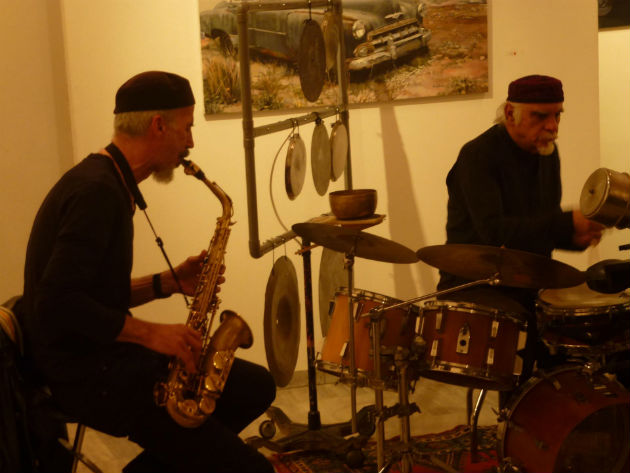 ΝΤ: Οι Απροσάρμοστοι που παίζουν κομμάτια του Παύλου, οι Σάτυρος Λαρούς και βέβαια οι Mode Plagal. Σήμερα έχουμε πολύ καλούς μουσικούς, νέα παιδιά που ξέρουν να γράφουν και να διαβάζουν παρτιτούρα, με πολύ καλή τεχνική, αλλά έτσι όπως είναι η κατάσταση, τι να πω... Δύσκολα βρίσκουν δουλειά και όταν παίζουν κάπου, δεν τους πληρώνουν ή τους δίνουν ελάχιστα χρήματα. Είναι πολύ λυπηρό αυτό που συμβαίνει. Δυστυχώς... Φταίνε και λίγο οι ίδιοι. Θα έπρεπε να μαζευτούν και να γίνουν μία γροθιά για να αντιμετωπίσουν την κατάσταση. Να φτιάξουν ένα μανιφέστο, να οργανωθούν.
ΝΤ: Οι Απροσάρμοστοι που παίζουν κομμάτια του Παύλου, οι Σάτυρος Λαρούς και βέβαια οι Mode Plagal. Σήμερα έχουμε πολύ καλούς μουσικούς, νέα παιδιά που ξέρουν να γράφουν και να διαβάζουν παρτιτούρα, με πολύ καλή τεχνική, αλλά έτσι όπως είναι η κατάσταση, τι να πω... Δύσκολα βρίσκουν δουλειά και όταν παίζουν κάπου, δεν τους πληρώνουν ή τους δίνουν ελάχιστα χρήματα. Είναι πολύ λυπηρό αυτό που συμβαίνει. Δυστυχώς... Φταίνε και λίγο οι ίδιοι. Θα έπρεπε να μαζευτούν και να γίνουν μία γροθιά για να αντιμετωπίσουν την κατάσταση. Να φτιάξουν ένα μανιφέστο, να οργανωθούν.
Στην Ολλανδία ήμουν μέλος του B.I.M. (Επαγγελματίες Μουσικοί Αυτοσχεδιασμού). Αυτό ήταν το σωματείο μας. Πέρναμε, ας πούμε, διακόσια φιορίνια για ένα gig, τα εκατό ήταν από το μαγαζί και τα άλλα εκατό από την B.I.M. Έμπαιναν βέβαια και κάποιοι κανόνες για την διάρκεια του gig, που το λιγότερο ήταν δύο σαρανταπεντάλεπτα και μισή ώρα διάλειμμα. Υπήρχαν συμβόλαια, έμπαινε πρόστιμο αν αργούσες... Για να είσαι μέλος πλήρωνες διακόσια φιορίνια τον χρόνο. Αν ήθελα, ας πούμε, να φτιάξω μία αφίσα για την συναυλία και στοίχιζε 100, αυτοί μου έδινα τα 50. Στις περιοδείες εντός Ολλανδίας έβαζαν τα χρήματα για την βενζίνη. Εδώ δεν γίνεται τίποτα... Ίσως φοβούνται ή πιστεύουν ότι δεν μπορεί να γίνει κάτι. Ίσως είμαι ονειροπόλος, αλλά πιστεύω ότι πρέπει να κάνουν οι Έλληνες μουσικοί κάποια πράγματα.
WT: Δυστυχώς για πολλούς έλληνες μουσικούς οικονομική λύση είναι το σκυλάδικο...
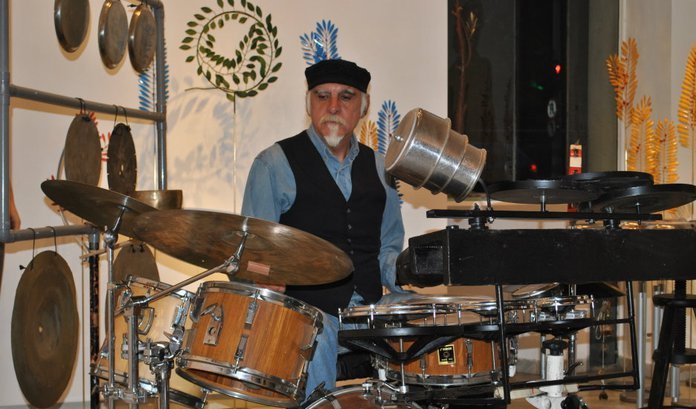 NT: Είμαι φανατικά ενάντιον σε αυτό που λέγεται «λαϊκό τραγούδι» από την δεκαετία του '50 και μετά και σε όλο αυτό το σκηνικό που το υποστηρίζει: ραδιόφωνα, δισκογραφικές εταιρείες κ.λπ. Νομίζω ότι έχει καταστρέψει την συνείδηση μας και έχει αλλάξει τον τρόπο σκέψης μας. Όλα είναι μαλακίες, οι στίχοι, τα τραγούδια, τα μπουζούκια, η κλάψα, τα μαγαζιά με τα σπασίματα πιάτων και τις άλλες γελοιότητες... Φυσικά δεν μιλάω για το ρεμπέτικο και τους ρεμπέτες. Μίλαω για όλη αυτή την καταστροφική κατάσταση από τα τέλη του '50 και μετά. Είχαμε ορκιστεί με τον Ντάλλα ότι δεν θα παίξουμε ποτέ σε μπουζούκια.
NT: Είμαι φανατικά ενάντιον σε αυτό που λέγεται «λαϊκό τραγούδι» από την δεκαετία του '50 και μετά και σε όλο αυτό το σκηνικό που το υποστηρίζει: ραδιόφωνα, δισκογραφικές εταιρείες κ.λπ. Νομίζω ότι έχει καταστρέψει την συνείδηση μας και έχει αλλάξει τον τρόπο σκέψης μας. Όλα είναι μαλακίες, οι στίχοι, τα τραγούδια, τα μπουζούκια, η κλάψα, τα μαγαζιά με τα σπασίματα πιάτων και τις άλλες γελοιότητες... Φυσικά δεν μιλάω για το ρεμπέτικο και τους ρεμπέτες. Μίλαω για όλη αυτή την καταστροφική κατάσταση από τα τέλη του '50 και μετά. Είχαμε ορκιστεί με τον Ντάλλα ότι δεν θα παίξουμε ποτέ σε μπουζούκια.
WT: Για την τραγική πλέον κατάσταση που υπάρχει στην Ελλάδα, τι γνώμη έχεις;
ΝΤ: Καταρχήν την Ελλάδα την αγαπάω πραγματικά και γι' αυτό η κριτική μου είναι σκληρή. Όσον αφορά το οικονομικό, πιστεύω ότι οι κυβερνήτες μας είναι κλέφτες και από την άλλη υπάρχει διεθνές πρόβλημα οικονομικά. Χτυπηθήκαμε από δύο μεριές... Το άλλο θέμα είναι ότι όσα χρόνια ζούσα στην Ελλάδα δεν θυμάμαι ποτέ να είδα απόδειξη. Αυτό σημαίνει, ότι αυτό που λένε, ότι ουσιαστικά δεν πληρώνουμε φόρους, είναι αλήθεια. Ή πληρώνουμε με λιγότερα δίνοντας φακελάκια κ.λπ. ή καθόλου με διάφορα κόλπα. Επίσης πιστεύω - και αυτό δεν είναι μόνο για την Ελλάδα αλλά για όλο τον κόσμο - ότι η νοοτροπία ενός λαού παίζει τον μεγαλύτερο ρόλο. Πολύ μεγαλύτερο και από τον ρόλο των πολιτικών. Η νοοτροπία του λαού ακόμα και την ώρα που ψηφίζει παίζει ρόλο...
Δυστυχώς είμαστε ένας λαός ο οποίος δεν ενδιαφέρεται για τίποτα. Νόμοι υπάρχουν αλλά δεν τους ακολουθούμε. Και αυτό το δικαιολογούν λέγοντας ότι εμείς είμαστε ελεύθεροι και όχι σκλάβοι σαν τους άλλους. Κάνουμε ό,τι γουστάρουμε, το γλεντάμε κ.λπ. Σεβαστό, έχεις το δικαίωμα να κάνεις ό,τι γουστάρεις αλλά μην περιμένεις να έχεις τα ίδια αποτελέσματα με αυτούς που βρίζεις, που λες ότι είναι σκλάβοι κ.λπ. Το πρόβλημα έχει να κάνει με την νοοτροπία μας. Και αυτό το βλέπουμε καθημερινά γύρω μας, στο πώς η κοινωνία λειτουργεί. Δεν χρειάζεται να γίνουμε σαν τους άλλους. Χρειάζεται να γίνουμε έτσι ώστε μεταξύ μας να υπάρχει εμπιστοσύνη. Κάτι θα πρέπει να γίνει στον λαό - στις κυβερνήσεις και στους πολιτικούς δεν έχω καμμία εμπιστοσύνη και σεβασμό. Χρόνια τώρα διοικούν τα μεγάλα τραστ, οι πολιτικοί απλά παίρνουν εντολές από αυτά. Ελπίζω να βρεθεί ένας τρόπος - ελληνικός - οργάνωσης, με τον οποίο να συμφωνεί ο ελληνικός λαός και να είναι αποδοτικός. Να συμφωνεί χωρίς να αισθάνεται σκλάβος ή ρομπότ. Αυτή είναι η γνώμη μου για την ελληνική πραγματικότητα...
Ακολουθεί το κείμενο της συνέντευξης στα αγγλικά:
Nikolas Tsilogiannis is one of the greatest and most important drummers of the greek music scene. Beginning his musical career in the mid 60s with the Idols, one of the best pop groups in Greece at the time, he continued with Bourboulia (with Dionisis Savopoulos as lead singer, later replaced by Pavlos Sidiropoulos, sadly deceased before his time), a band of such historic importance τηατ words can not do it justice. Since 1976, when he moved to Holland, his musical wanderings led him along the strange paths of improvisational music through collaborations mainly with Dutch musicians, while his experimentation with the visual arts has produced some amazing works - you can view a collection of his pieces at the art gallery Titanium (44 Vasileos Konstandinou Ave.) from the 1st of July to the 20th of July.
This great artist had a conversation with our own Akis Wildthing.
Wild Thing: First of all Nikola, how did you begin playing the drums? Nikolas Tsilogiannis: The drums are a mystery to me, just like many other mysterious things in my life. What I do remember is that I started work as a twelve-year-old. I was a not a good student at school, I am basically unschooled, but not uneducated - there's a big difference there. So I find myself at an uncle's metal yard, working at twelve years of age, and what I remember is, I am holding two drum sticks and I am playing on a drami (a round flat weight "mass", used in old scales for weighing big objects/metals). What I don't remember is, how did the drum sticks get there, did I find them, did I buy them? I can't remember at all. Basically my father and uncle intended that I should become the firm's accountant, but as I told you I was a bad student, kept sciving off school and such. I've seen a billion films, while I should have been at school. At that time my cousin, this same uncle's son, was a member of H.E.N (a christian youth organisation) and among other things, they organised parties, with a live band. Vangelis Papathanassiou was a member, though he left to set up the Forminx. So my cousin says to me "Hey Nikola, we don't have a group for our parties, why don't you come and play?" and I said "What can I do? I don't have a drum kit, I just play on the drami" - "Well the rest of them are the same, play any way you can!". I asked him if they had a drum set there and he said yes, they did, so over I went and up came a guitarist, who had a shop selling hand bags, a trumpet player who played with the municipal band, originally from Corfu, and a tenor saxophonist, who was a bank employee. We started out playing various boleros and such. The guitarist got us a gig in a "taverna" restaurant where we would get a hundred drachmas a night. Imagine, my salary at my uncle's was two hundred drachmas a month! I left my morning job, since among other things I was a lousy salesman and we began playing. This group was called Los Allegrinos, and was my first band. Then some decided to leave, others to stay and the one leaving asked me "Niko, would you like to join such and such a band?" I always agreed whenever I was asked to play, and that is how I got into the Idols. We were on the island of Spetses with Jimmy Jimopoulos, Demis Roussos and another young guy - Michalis was his name, I don't remember his surname - who was a piano player. Then we were joined by Jo Michat, Demis' cousin who had just arrived from Lebannon, and Andonis Yioulis the guitarist, who is the father of Yioulis the drummer who currently plays with Akis Tourkogiorgis. So we became the Idols. We played in the biggest venues of the time, we were a dance band and played all the latest hits. We sang in all languages, Demis and Jo in english - Jo in french too - and I did some italian songs. We covered the hits of the time, Beatles, Stones etc. and even recorded two 45's. Then I was called up to the army for compulsory service and we had an agreement that when i was released they would see if they wanted me back or not. And they voted not.
Nikolas Tsilogiannis: The drums are a mystery to me, just like many other mysterious things in my life. What I do remember is that I started work as a twelve-year-old. I was a not a good student at school, I am basically unschooled, but not uneducated - there's a big difference there. So I find myself at an uncle's metal yard, working at twelve years of age, and what I remember is, I am holding two drum sticks and I am playing on a drami (a round flat weight "mass", used in old scales for weighing big objects/metals). What I don't remember is, how did the drum sticks get there, did I find them, did I buy them? I can't remember at all. Basically my father and uncle intended that I should become the firm's accountant, but as I told you I was a bad student, kept sciving off school and such. I've seen a billion films, while I should have been at school. At that time my cousin, this same uncle's son, was a member of H.E.N (a christian youth organisation) and among other things, they organised parties, with a live band. Vangelis Papathanassiou was a member, though he left to set up the Forminx. So my cousin says to me "Hey Nikola, we don't have a group for our parties, why don't you come and play?" and I said "What can I do? I don't have a drum kit, I just play on the drami" - "Well the rest of them are the same, play any way you can!". I asked him if they had a drum set there and he said yes, they did, so over I went and up came a guitarist, who had a shop selling hand bags, a trumpet player who played with the municipal band, originally from Corfu, and a tenor saxophonist, who was a bank employee. We started out playing various boleros and such. The guitarist got us a gig in a "taverna" restaurant where we would get a hundred drachmas a night. Imagine, my salary at my uncle's was two hundred drachmas a month! I left my morning job, since among other things I was a lousy salesman and we began playing. This group was called Los Allegrinos, and was my first band. Then some decided to leave, others to stay and the one leaving asked me "Niko, would you like to join such and such a band?" I always agreed whenever I was asked to play, and that is how I got into the Idols. We were on the island of Spetses with Jimmy Jimopoulos, Demis Roussos and another young guy - Michalis was his name, I don't remember his surname - who was a piano player. Then we were joined by Jo Michat, Demis' cousin who had just arrived from Lebannon, and Andonis Yioulis the guitarist, who is the father of Yioulis the drummer who currently plays with Akis Tourkogiorgis. So we became the Idols. We played in the biggest venues of the time, we were a dance band and played all the latest hits. We sang in all languages, Demis and Jo in english - Jo in french too - and I did some italian songs. We covered the hits of the time, Beatles, Stones etc. and even recorded two 45's. Then I was called up to the army for compulsory service and we had an agreement that when i was released they would see if they wanted me back or not. And they voted not.
WT: Had the group's line-up changed?
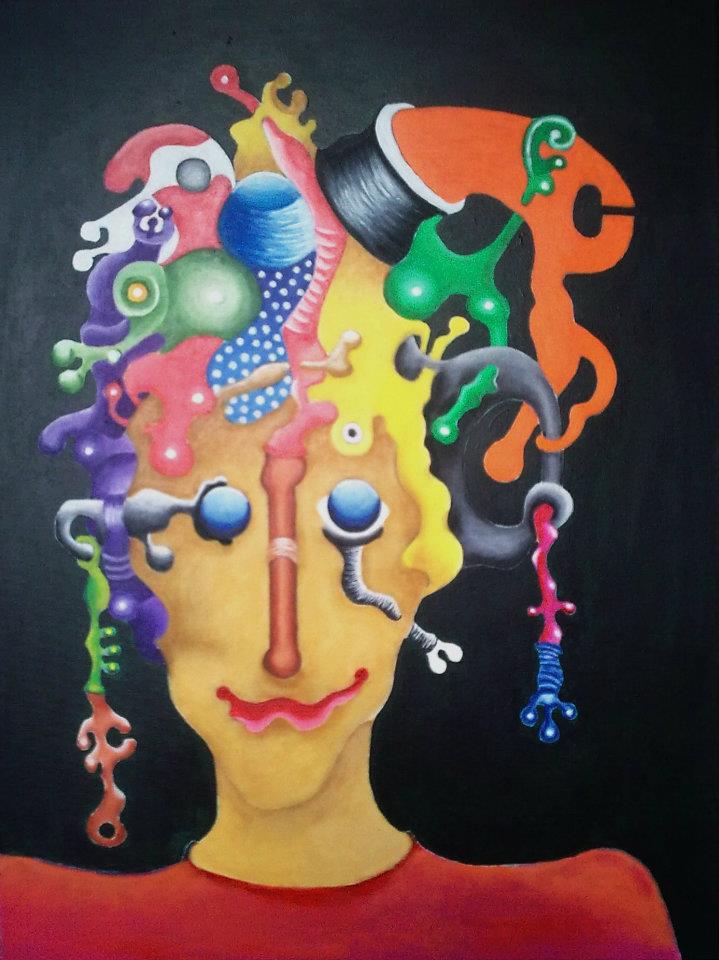 NT: Yes, Demis was already in Paris with Loukas Sideras and Vangelis Papathanassiou. The Idols now had Giorgos Petridis on vocals and Vassilis Kostandinidis on drums. As I was leaving, saddened by the guys' refusal - very democratically decided however, so I wasn't angry with them - Vassilis Kostandinidis told me he was sorry about what happened and so forth, and that there was this Giorgos Romanos guy and a certain Savvopoulos who wanted to form a group. He gave me Dionissis' (Savvopoulos) telephone number, I called him, we met and agreed to collaborate. Then we were joined by Vassilis Dallas, Aris Tassoulis and Takis Androutsos. This was the group's first line up in 1968. We practiced in Plaka, with Romanos too, and when the group was ready Dionissis got us work playing at a club called Barbarella in Salonica. We stayed there a little while. Romanos turned up for only one night, then he disappeared. I don't know what happened... Then we went back down to Athens, where Dionissis knew this someone who was supposed to have become our manager, and he gets us a gig at the Rodeo club. This venue belonged to three brothers, the Zervas brothers. One of them sold washing machines and other household appliances, another worked for Finos Films, making backdrops -no, he was not a scenographer, but a technician - and the third one was an accountant at some firm. I believe they set up the Rodeo just for kicks, you know for the kids to get together and dance etc. They never imagined they would make a killing. We started playing there but people just walked out or stayed away. Why? Because, as I recall it, at the time Dionissis was a member of the Communist Party and all his fans wanted him to stay with the acoustic guitar, Dylan-style. However Dionissis had returned from Italy, where he had gone to escape the secret police who thought he knew the whereabouts of Mikis Theodorakis (an important Greek composer and member of the Communist Party, personna non grata for the Greek junta in the 60s and 70s) and other such nonsense. There he had seen and been touched by other influences, and he wanted to set up a band. Zervas, the owner, was paying us as usual, and we never lost a dime even though the place was virtually empty for up to two months. We kept on playing and at the end of each week he would tell Dionissis "Don't worry Dionissis, we'll make it". It was great for Dionissis to get that kind of psychological support from the club owner. What followed is, as they say, history. We played twice a day to a full house, every day for almost three years. The program was supplemented with the Dioskouri, Spiros and Lida, who usually opened for us, and we also had Vangelis Germanos or Mariza (Koch). A great idea of Dionissis' we used was accompanying Mariza's singing with me only on drums. At the time it was something innovative. It is my opinion that Dionissis had amazing ideas. The fact that he had become famous gave him an advantage and the club owners, it was Zervas at the time, trusted him. For example the amazing live sessions with Mr. Spatharis (a famous puppeteer for the greek/turkish traditional shadow puppet theatre) performing "Karagiozis" (the central hero of all shadow theatre performances, after whom the whole genre is named) on one side of the stage, a film showing on the other and us playing in the middle.
NT: Yes, Demis was already in Paris with Loukas Sideras and Vangelis Papathanassiou. The Idols now had Giorgos Petridis on vocals and Vassilis Kostandinidis on drums. As I was leaving, saddened by the guys' refusal - very democratically decided however, so I wasn't angry with them - Vassilis Kostandinidis told me he was sorry about what happened and so forth, and that there was this Giorgos Romanos guy and a certain Savvopoulos who wanted to form a group. He gave me Dionissis' (Savvopoulos) telephone number, I called him, we met and agreed to collaborate. Then we were joined by Vassilis Dallas, Aris Tassoulis and Takis Androutsos. This was the group's first line up in 1968. We practiced in Plaka, with Romanos too, and when the group was ready Dionissis got us work playing at a club called Barbarella in Salonica. We stayed there a little while. Romanos turned up for only one night, then he disappeared. I don't know what happened... Then we went back down to Athens, where Dionissis knew this someone who was supposed to have become our manager, and he gets us a gig at the Rodeo club. This venue belonged to three brothers, the Zervas brothers. One of them sold washing machines and other household appliances, another worked for Finos Films, making backdrops -no, he was not a scenographer, but a technician - and the third one was an accountant at some firm. I believe they set up the Rodeo just for kicks, you know for the kids to get together and dance etc. They never imagined they would make a killing. We started playing there but people just walked out or stayed away. Why? Because, as I recall it, at the time Dionissis was a member of the Communist Party and all his fans wanted him to stay with the acoustic guitar, Dylan-style. However Dionissis had returned from Italy, where he had gone to escape the secret police who thought he knew the whereabouts of Mikis Theodorakis (an important Greek composer and member of the Communist Party, personna non grata for the Greek junta in the 60s and 70s) and other such nonsense. There he had seen and been touched by other influences, and he wanted to set up a band. Zervas, the owner, was paying us as usual, and we never lost a dime even though the place was virtually empty for up to two months. We kept on playing and at the end of each week he would tell Dionissis "Don't worry Dionissis, we'll make it". It was great for Dionissis to get that kind of psychological support from the club owner. What followed is, as they say, history. We played twice a day to a full house, every day for almost three years. The program was supplemented with the Dioskouri, Spiros and Lida, who usually opened for us, and we also had Vangelis Germanos or Mariza (Koch). A great idea of Dionissis' we used was accompanying Mariza's singing with me only on drums. At the time it was something innovative. It is my opinion that Dionissis had amazing ideas. The fact that he had become famous gave him an advantage and the club owners, it was Zervas at the time, trusted him. For example the amazing live sessions with Mr. Spatharis (a famous puppeteer for the greek/turkish traditional shadow puppet theatre) performing "Karagiozis" (the central hero of all shadow theatre performances, after whom the whole genre is named) on one side of the stage, a film showing on the other and us playing in the middle.
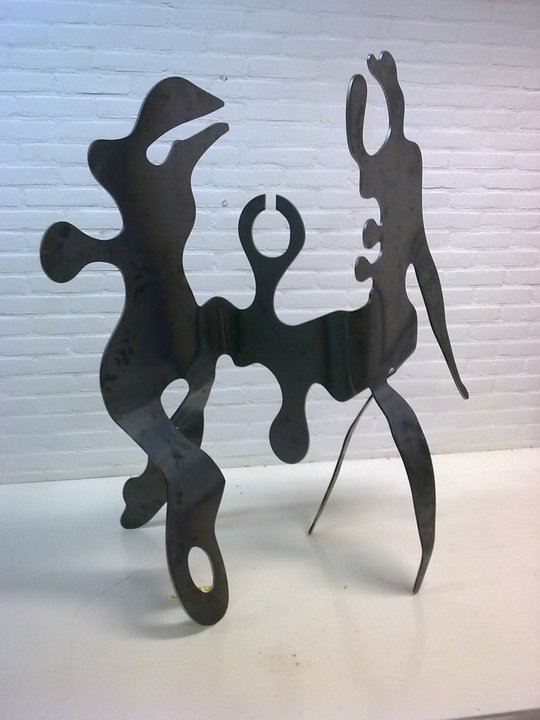 WT: How did you choose the name Bourboulia?
WT: How did you choose the name Bourboulia?
NT: It was Dionissis who chose it. It was a wink at the Beatles. As you know the 'bourbouli' is also an insect. Like the may bug but completely black.
WT: Did you all write the songs together?
NT: Dionissis would arrive with his guitar saying he had this song and he would ask each of us, "What shall we put in it?" and we would each tell him two or three different ideas, which he would choose from, while the final word was his, since it was his song. So all the orchestration you can hear through out the record Ballos was ours, with Dionissis' approval of course. For example he would say to me, "Niko, could you use the tom-tom instead of the right cymbal? I like it better" and that's the version we would keep. At that time Dionissis neither read nor wrote musical notation, nor did we, but we had the experience from the previous bands we had played in. We knew what it meant to play in a rock'n'roll band. He brought us his compositions and we gave him the knowledge, such as it was, that we had on our instruments.
WT: What music were you listening to at the time?
NT: Of course the Beatles and the Rolling Stones. Then gradually the whole thing opened up... I learnt a lot from Vassilis Dallas, who had some friends with rich parents, so they traveled abroad to London, Paris etc. and brought back records, usually the latest releases, which reached us about half a year later. As I said we listened to The Beatles, The Stones, The Band, Van Morrison, Pink Floyd, Zappa, Vanilla Fudge. Many groups... Anything to do with rock'n'roll or with new sounds, for those times. Then we moved on to John McLaughlin and jazz-fusion...
WT: It was also the psychedelic era...
NT: The psychedelic scene has little to do with the music. It was due to the use of certain sound effects etc. It was more a matter of marketing. You know, the colors, the lettering and these created an atmosphere which they called psychedelic. But Ι can't recall any group claiming to play psychedelic music. There were the drugs of course, but it was mostly marketing on the part of the record companies. All of this is, however, my opinion.
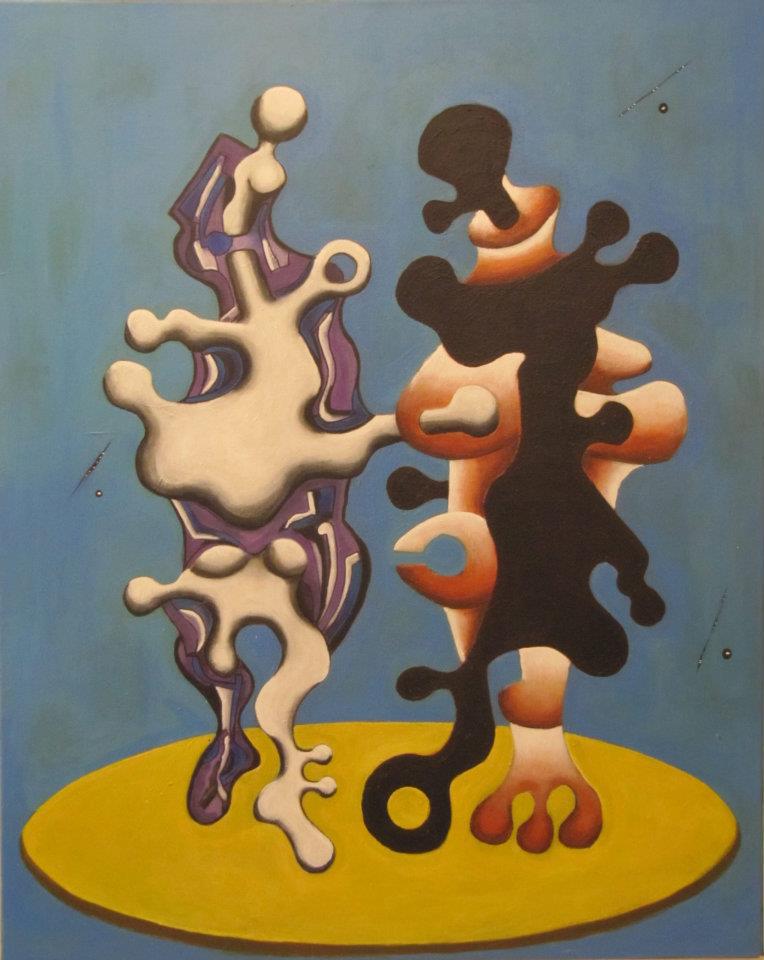 WT: After leaving Dionissis Savvopoulos you played with Pavlos Sidiripoulos.
WT: After leaving Dionissis Savvopoulos you played with Pavlos Sidiripoulos.
NT: When we left Savvopoulos, we met Pavlos Sidiropoulos at Stira, on the island of Evia. The guy who had the Rodeo club in Athens also had a "summer" Rodeo there, an open air discoteque. At the time the Bourboulia line-up was Johnny Lambitsi, Dallas and I. We played both live sets and as dj's. Pavlos had been visiting the area with his familly since childhood. He came up to meet us, we spoke and he told us he was a student in Salonica and that he wanted to become seriously involved in music. We became very good friends. He came down to Athens and brought Pandelis Deligiannidis with him; they set up a band called Damon & Fidias. Then we started playing together, Pavlos, Dallas, Pandelis and I, and we kept the name Bourboulia. Dionissis was OK with that. Later we were joined by Nikos Daperis and two english guys who had played for a while with Peloma Bokiou, Vic and Chris. We played in Salonica, came back and recorded the song "Sardonios" and another one, neither of which I think exist on any record, at Vassilis' studio. Then one of the saxophonists sort of argued with Vassilis and I left for Holland, in 1976... I really want to say that all those years between 1968 and 1976 were great. We had an amazing time.
WT: Is there a song that stands out for you, from the period you were playing with the Bourboulia?
NT: The song "Mavri Thalassa" ('Black Sea') from the record Zontani sto Kyttaro ('Live at Kittaro') with Daperis, Gadeli and Dallas. Even today it sounds way ahead of its time. I am proud of this, for the rest of it too, but most of all for "Mavri Thalassa".
WT: Why did you leave for Holland?
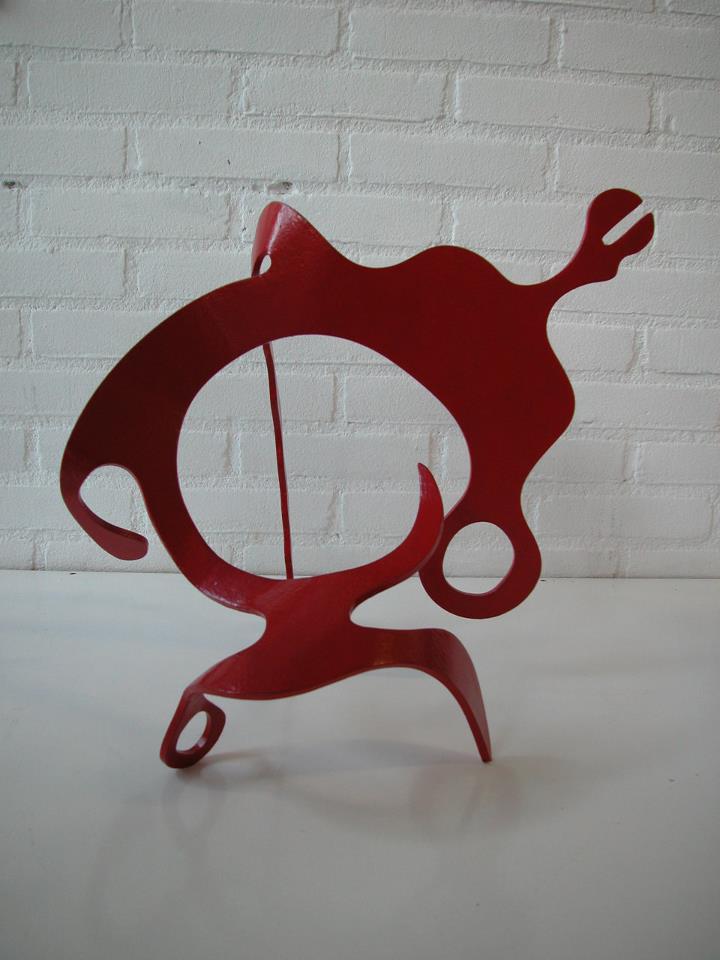 NT: I had met a Dutch girl, we were writing each other frequently and when I stopped playing with the band she told me "Since you're not doing anything, why don't you come over and see if you like it?" Normally I would have gone to London; Bonatsos and Androutsos were there and they had asked me to go since they were fixing something up, but we lost contact and I went to Holland. I liked it and I stayed. In Holland I set myself down to study and change my techniques, which were rock'n'roll, so i could play improvisational music. I set up my own groups with Dutch musicians. But from 1974, when I visited Paris, I had begun fooling around with pen and paper, becoming interested in the visual arts. And I have never stopped since... From simple drawing, I turned to olive-tree wood carving and from there to three dimensional objects. Then I started making wooden statues, many of them inspired by our mythology, Ikarus, the Minotaur etc. Then I graduated to bronze and metal objects.
NT: I had met a Dutch girl, we were writing each other frequently and when I stopped playing with the band she told me "Since you're not doing anything, why don't you come over and see if you like it?" Normally I would have gone to London; Bonatsos and Androutsos were there and they had asked me to go since they were fixing something up, but we lost contact and I went to Holland. I liked it and I stayed. In Holland I set myself down to study and change my techniques, which were rock'n'roll, so i could play improvisational music. I set up my own groups with Dutch musicians. But from 1974, when I visited Paris, I had begun fooling around with pen and paper, becoming interested in the visual arts. And I have never stopped since... From simple drawing, I turned to olive-tree wood carving and from there to three dimensional objects. Then I started making wooden statues, many of them inspired by our mythology, Ikarus, the Minotaur etc. Then I graduated to bronze and metal objects.
WT: Alongside your career in the visual arts you also had an important musical career in Holland...
NT: Out of the 36 years I have lived in Holland, I've spent about thirteen of them on my musical career with my own bands, quintets, quartets, trios. My direction was ever more abstract, towards free jazz. What happened was that, on one hand a slew of music school graduates meant that many of the bands they set up were playing mostly 50s and 60s jazz - you know bebop and such - while on the other what we were playing was not so, let's say, "easily digestible". Then, due to mismanagement, the jazz clubs lost their government subsidies and had to close. So what followed was... my attraction to the the visual arts, since I didn't have the same responsibilities over arranging practice sessions etc. In the visual arts you work alone, drawing, sculpting. Things became difficult with music, I had to beg to arrange a gig. Nowadays I hardly play at all; only when I come back to Greece do I play sometimes at the art gallery. Of course I want to set up a group and collaborate with various musicians, always playing straight up, without sheet music or great discussions. Just music. And I pick guys I know have experience, like for example, when I last played, Thodoris Rellos who has a long standing career behind him. I saw him and his band Mode Plagal at a club called Faoust a few days ago, and I even sat in with them for a song, "Mavrodafni". The guys are doing amazing work.
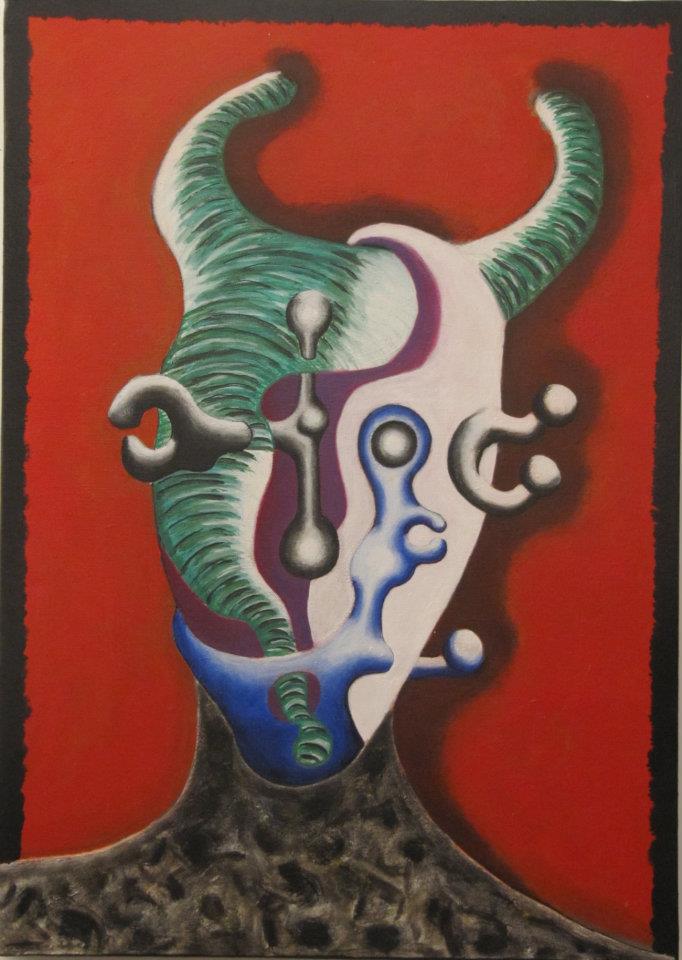 WT: I believe the "marriage" of traditional Greek music with rock and jazz originated with the Bourboulia. What is your opinion?
WT: I believe the "marriage" of traditional Greek music with rock and jazz originated with the Bourboulia. What is your opinion?
NT: In my opinion, and I might be wrong, it was us and Dionissis who started it. Basically we did what we had to do. Dionissis had very good ideas. Likewise, I believe the renaissance of Rebetico music (the Greek "blues" of the 20s and 30s) was his idea. After discussing it with Ilias Petropoulos he invited Keromitis, Bouflouzelis and other rebetico musicians, to play at the Kyttaro club. Later on too, when we played with Pavlos and Pandelis at the Maimou, in the Plaka area, we experimented in similar ways. There was a song of ours called "Dimotiko", where I started out playing bells and Delligiannidis used traditional greek scales in a very nice intro.
WT: On the cd's you recorded with Dutch musicians, some songs are also experiments with traditional Greek scales. Obviously, you are the one who taught them these...
NT: Yes, it was I who taught them. On the first cd there is a song whose basic theme I had recorded on a portable cassette player at some point when waiting for Pavlos (Sidiropoulos). This piece was in 2/4 time and I showed it to the pianist from our group in Holland and asked him to score it, but in another rhythm, and I showed him a Zeibekiko (a traditional greek rhythm). And he put my theme to a 9/8 rhythm, that of the Zeibekiko. Also on the same cd there's an adaptation of the song "Ai Gianni Stiliane". I would tell the guys I was playing with that there are other tricks beyond 4/4 and 3/4 time signatures. And then they started playing with other musicians, Indians, Turks, Africans. In fact, later they recorded an album and on the evening of its presentation at the Utrecht Jazz club they said "we dedicate this album to Niko who taught us about other rhythms and what we call ethnic music". It was wonderful, an extremely touching moment. I had played them music by Yannis Markopoulos, Savina Yannatou, Mode Plagal (all Greek musicians). Mode Plagal had come to play in Utrecht and when I saw them I said to myself that since I am Greek, when I play a solo, why should I do it in 4/4 time? I should do it in 9/8 or 7/8. In this aspect they opened my perception, to play what I want, yet to be able to use our musical history and tradition. When I am playing a song in 4/4, in the solo I change over to say, 5/8 and then return to the initial 4/4 time. This is a big deal to me. A challenge. In fact our musical tradition is immense, deep and old. Look at African music, how it is constantly being combined with rock, funk etc. bringing about something new. I mean that, all over the world people are using elements of their musical traditions in whatever they play. I did something similar, but in the genre of free-form improvisational music.
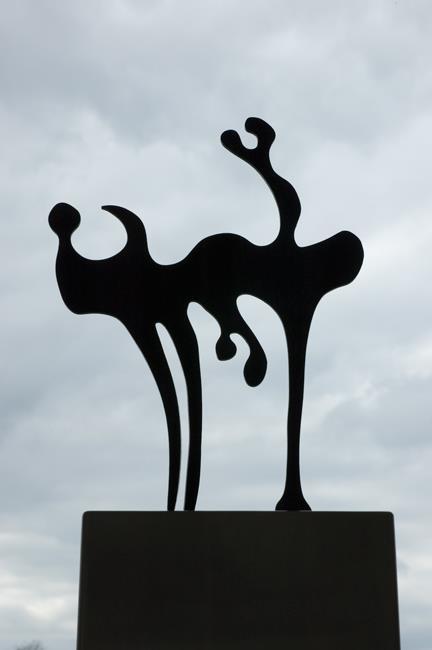 WT: Do you follow the current Greek rock scene? Are there any groups you like?
WT: Do you follow the current Greek rock scene? Are there any groups you like?
NT: The Aprosarmosti, who play songs written by Pavlos (Sidiropoulos), Satyros Larous and of course Mode Plagal. Today in Greece there are many good musicians, young kids who know how to read and write music, with very good technique, but as things stand right now... what can I say? It is hard for them to find work and when they do play someplace, they are either not payed at all or given a pittance. What is happening is very sad, unfortunately... It is partly their own fault too. They should come together in a united front to face the situation. Write a manifesto, organise themselves. In Holland I was a member of the B.I.M. (professional improvisational musicians). That was our union. For instance, we would get two hundred guilders for a gig, a hundred from the club and the other hundred from the union. There were of course certain rules about the duration of a gig, which was a minimum of two forty-five minute sessions with a half hour break. There were contracts, you were fined if you were late... To become a member you payed two hundred guilders a year. Let's say I wanted a poster for the gig, and it cost a hundred guilders, they gave me fifty. For tours within Holland they payed for the gas. Here in Greece there is nothing happening... Maybe they are afraid or they believe nothing can be done. Maybe I am a dreamer but I believe that Greek musicians need to act for themselves.
WT: Unfortunately for many Greek musicians the solution to their financial problem is to play at a Skiladiko (a club playing extremely bad quality but very popular and loud live Greek music, a travesty combination of traditional Greek forms with most foreign pop styles - disco, hip-hop, dance, even Indian pop - exibiting large proportions of bathos.)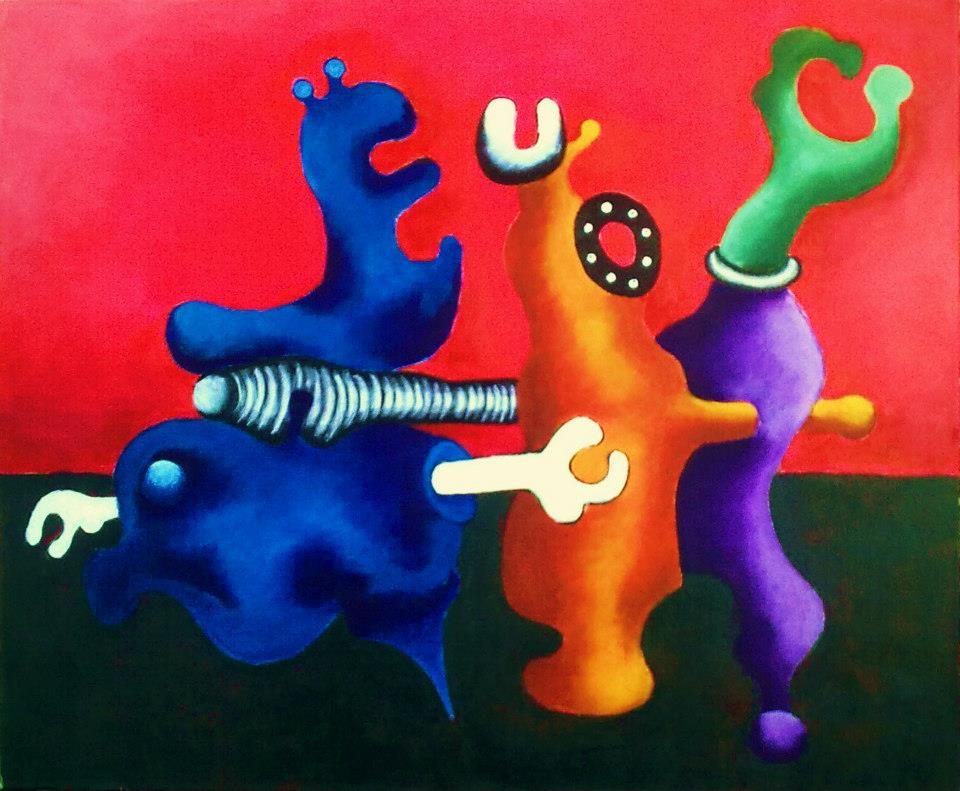 NT: I am fanatically opposed to what is called 'Laiko' (the older version of Skiladiko, mostly influenced by Indian popular music from movies and similar sources in the 50s and 60s) from the 50s onwards and against the whole scene that supports it, radio, record companies etc. I believe it has destroyed our consciense and changed our way of thought. It's all bullshit, the lyrics, the songs, the bouzoukis (traditional greek stringed instrument widely used and "abused" in skiladiko music), the bathos, the clubs where piles of plates are broken "with a passion" and other inanities... Of course I am not referring to Rebetico music and the Rebetes (Rebetico musicians). I am speaking of the catastrophic situation from the late 50s onwards. With Dallas we had sworn an oath to never play "at the bouzoukia".
NT: I am fanatically opposed to what is called 'Laiko' (the older version of Skiladiko, mostly influenced by Indian popular music from movies and similar sources in the 50s and 60s) from the 50s onwards and against the whole scene that supports it, radio, record companies etc. I believe it has destroyed our consciense and changed our way of thought. It's all bullshit, the lyrics, the songs, the bouzoukis (traditional greek stringed instrument widely used and "abused" in skiladiko music), the bathos, the clubs where piles of plates are broken "with a passion" and other inanities... Of course I am not referring to Rebetico music and the Rebetes (Rebetico musicians). I am speaking of the catastrophic situation from the late 50s onwards. With Dallas we had sworn an oath to never play "at the bouzoukia".
WT: The situation in Greece has now become tragic, what is your opinion on this?
NT: First things first, I really love Greece and therefore my criticism is harsh. As to the financial situation, I believe those governing us in Greece are thieves, while on the other hand the problem is also international. We were hit on both sides... The other issue concerns receipts for payments, I don't remember ever seeing any for as long as Ilived in Greece. This means that, what they are saying about us essentially not paying taxes is true. Either we pay less, under the table etc. (called "fakelakia", meaning a furtive envelope - of money - instead of an open payment requiring a receipt) or not at all, using various "tricks". I also believe, and this not only about Greeks but for the whole world, that a people's general mentality plays the most crucial role. Much greater than that of the politicians. Even during voting, this mentality has a role to play... Unfortunately we (Greeks) are a people who care for nothing. There are laws, but we do not obey them. And this is justified by saying that we are free and not slaves, like the others (Western Europeans, Americans etc.). We do what we please, having a great good old time etc. So I respect that, it is your right to do anything you please, but don't expect to have the same end result as those you bad-mouth, that you call slaves and so forth. The problem has to do with our mentality. And we see this around us every day, in the way society works. We don't need to be like others. We need to build trust amongst ourselves. Something must be done amongst and by the people, I have no respect and no confidence in governments and politicians. For years now the big financial trusts rule Greece, the politicians simply follow their orders. I hope an effective way - a Greek way - of organising the country can be found, that the Greek people will agree to. That they are able to agree to without feeling like robots or slaves. This is my opinion on the actuality of greek society...
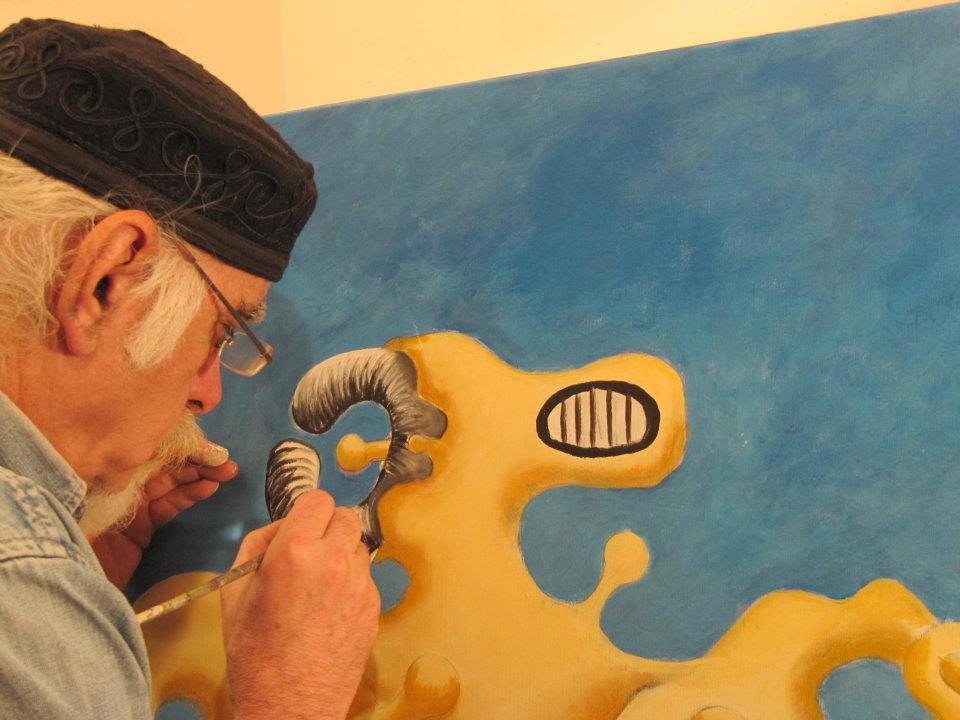
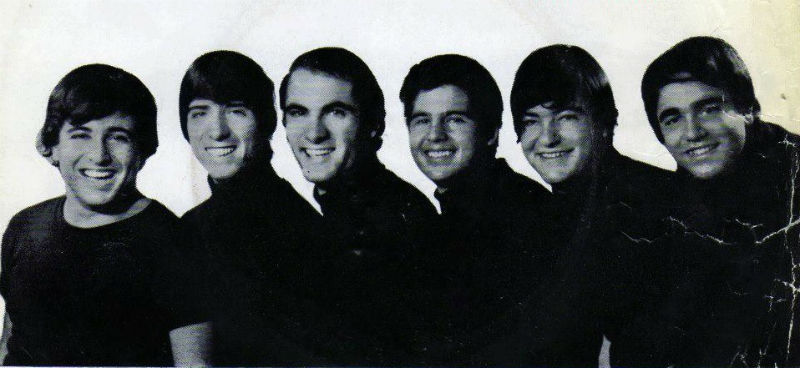
Idols
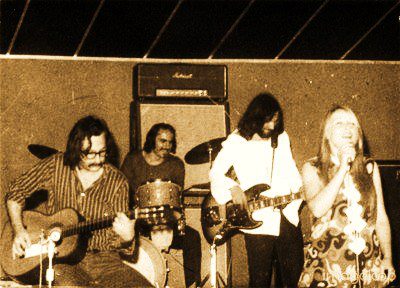
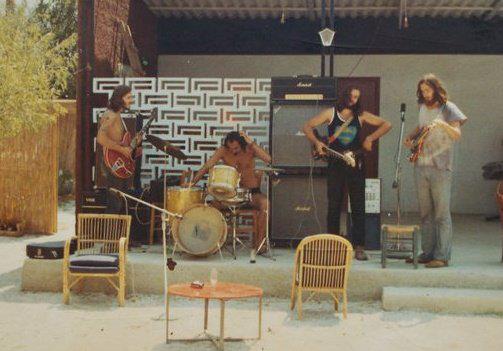
Μπουρμπούλια (Bourboulia)
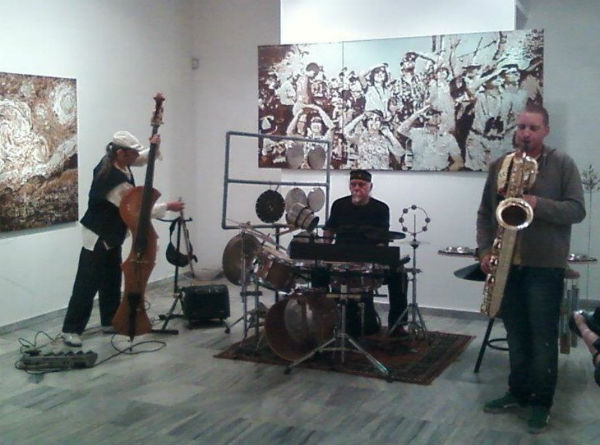
Tags: Νικόλας Τσιλογιάννης, Idols, Μπουρμπούλια, Διονύσης Σαββόπουλος, Παύλος Σιδηρόπουλος, greek rock scene, free jazz, interview
From 1998 to 2012...
Some personal favourites!!
BLUE CHEER - What Doesn't Kill You (2007)
BUDDY GUY - Skin Deep (2008)
BUDDY MILES - Blues Burries (2002)
CHRIS DUARTE GROUP - Blue Velocity (2007)
COLOUR HAZE - Colour Haze (2004)
CORROSION OF CONFORMITY - America's Volume Dealer (2000)
FU MANCHU - California Crossing (2001)
GARY CLARK JR. - The Bright Lights E.P. (2011)
GEORGE THOROGOOD & THE DESTROYERS - 2120 South Michigan Avenue (2011)
GUITAR SHORTY - We The People (2006)
JAMES BLOOD ULMER - Birthright (2005)
JIMMIE VAUGHAN - Plays Blues, Ballads & Favorites (2010)
LESLIE WEST - Unusual Suspects (2011)
MONSTER MAGNET - Powertrip (1998)
OZRIC TENTACLES - Live At The Pongmaster's Ball (2002)
PORCUPINE TREE - Fear Of A Blank Planet (2007)
QUEENS OF THE STONE AGE - Rated R (2000)
REIGNING SOUND - Too Much Guitar (2004)
R.L. BURNSIDE - Well Well Well (2001)
ROBERT RANDOLPH & THE FAMILY BAND - Live At The Wetlands (2002)
ROKY ERICKSON - True Love Cast Out All Evil (2010)
THE BLACK KEYS - The Big Come Up (2002)
THE BRIAN JONESTOWN MASSACRE - Bravery, Repetition & Noise (2001)
THE CLUTCH - Blast Tyrant (2004)
THE FUZZTONES - Salt For Zombies (2003)
THE HELLACOPTERS - By The Grace Of God (2002)
THE SUPERSUCKERS - Live At The Magic Bag, Ferndale, Michigan (2004)
TOOL - Lateralus (2001)
WOLFMOTHER - Wolfmother (2005)
(Άκης Γαρράς / in the meantime...)


